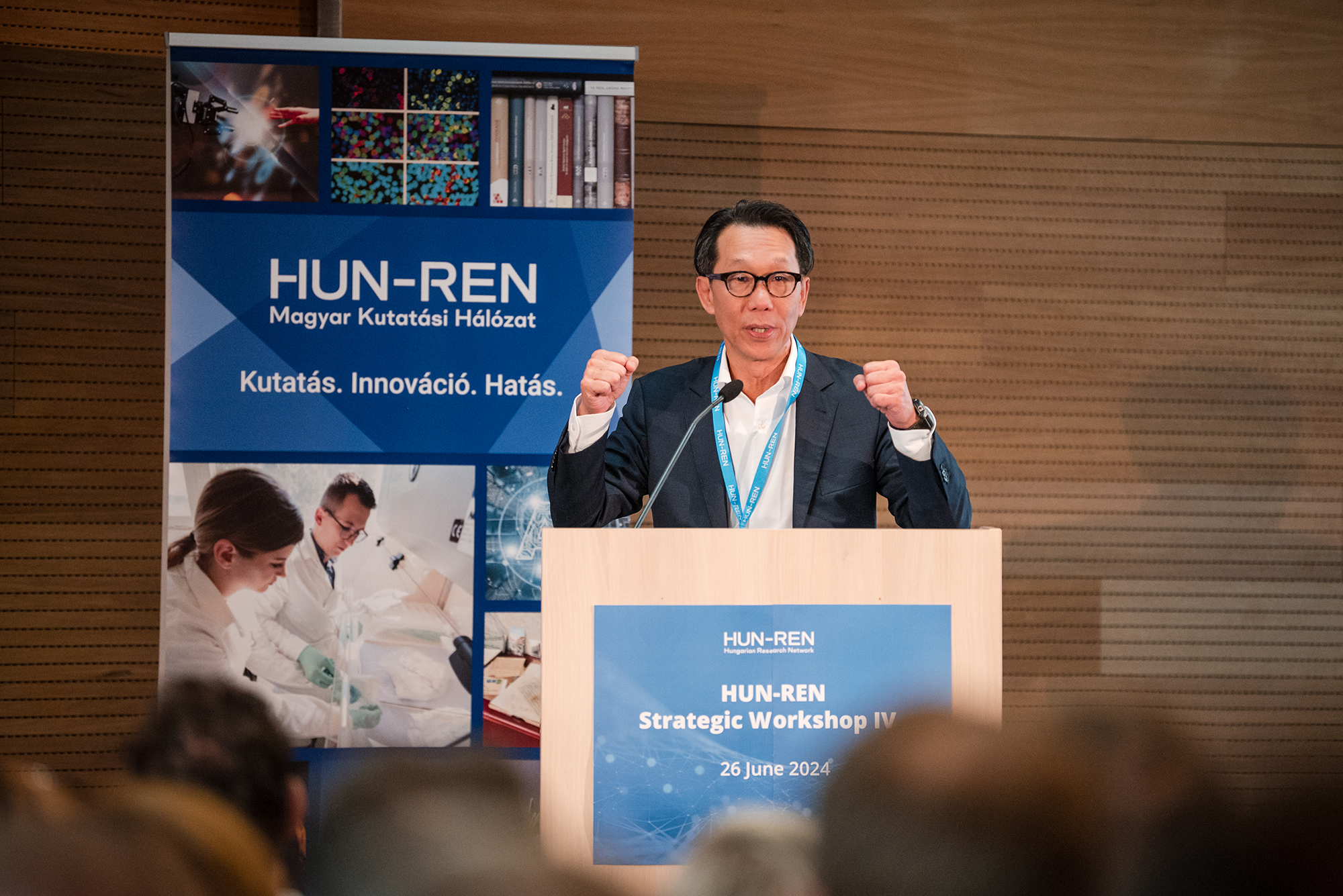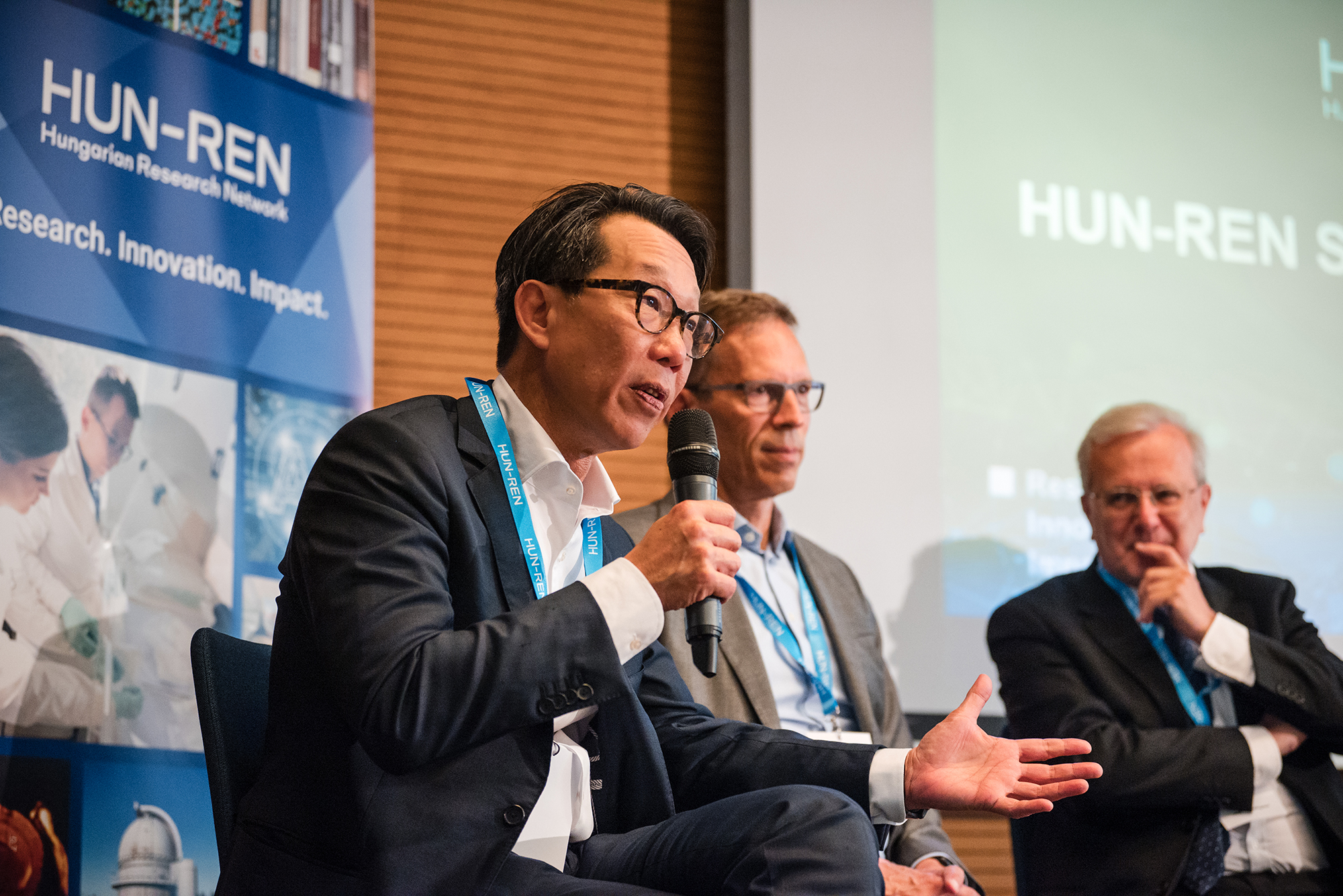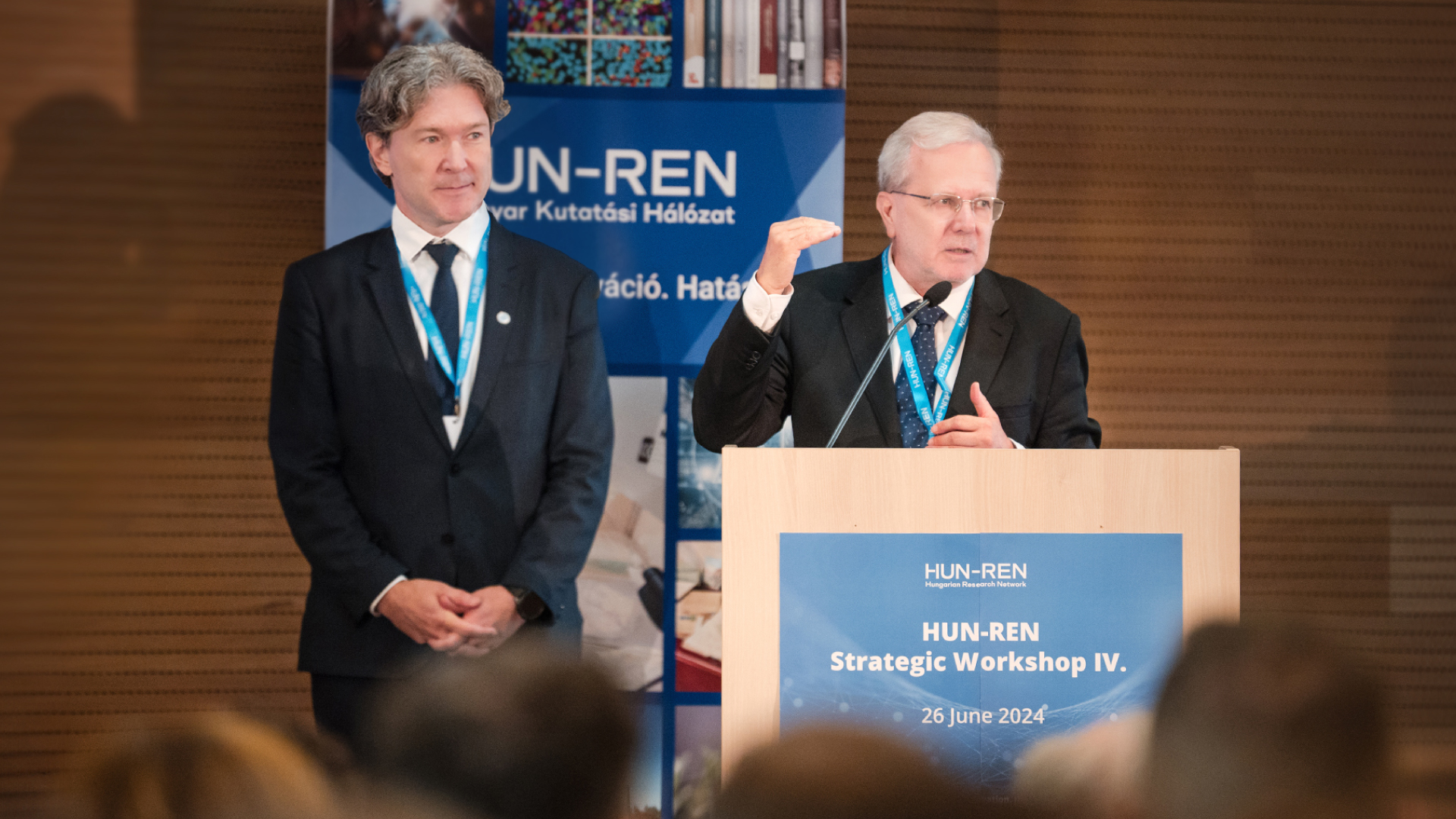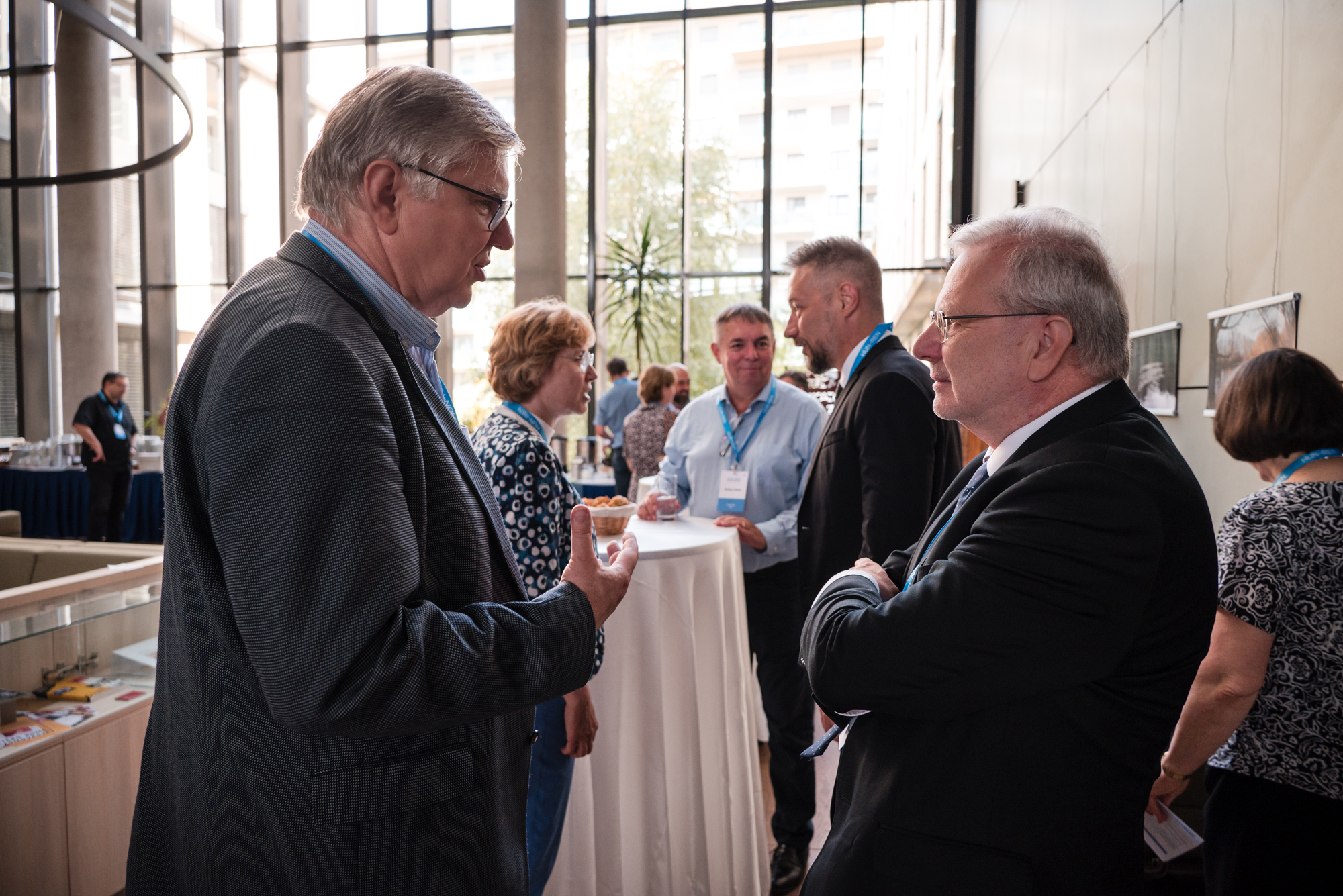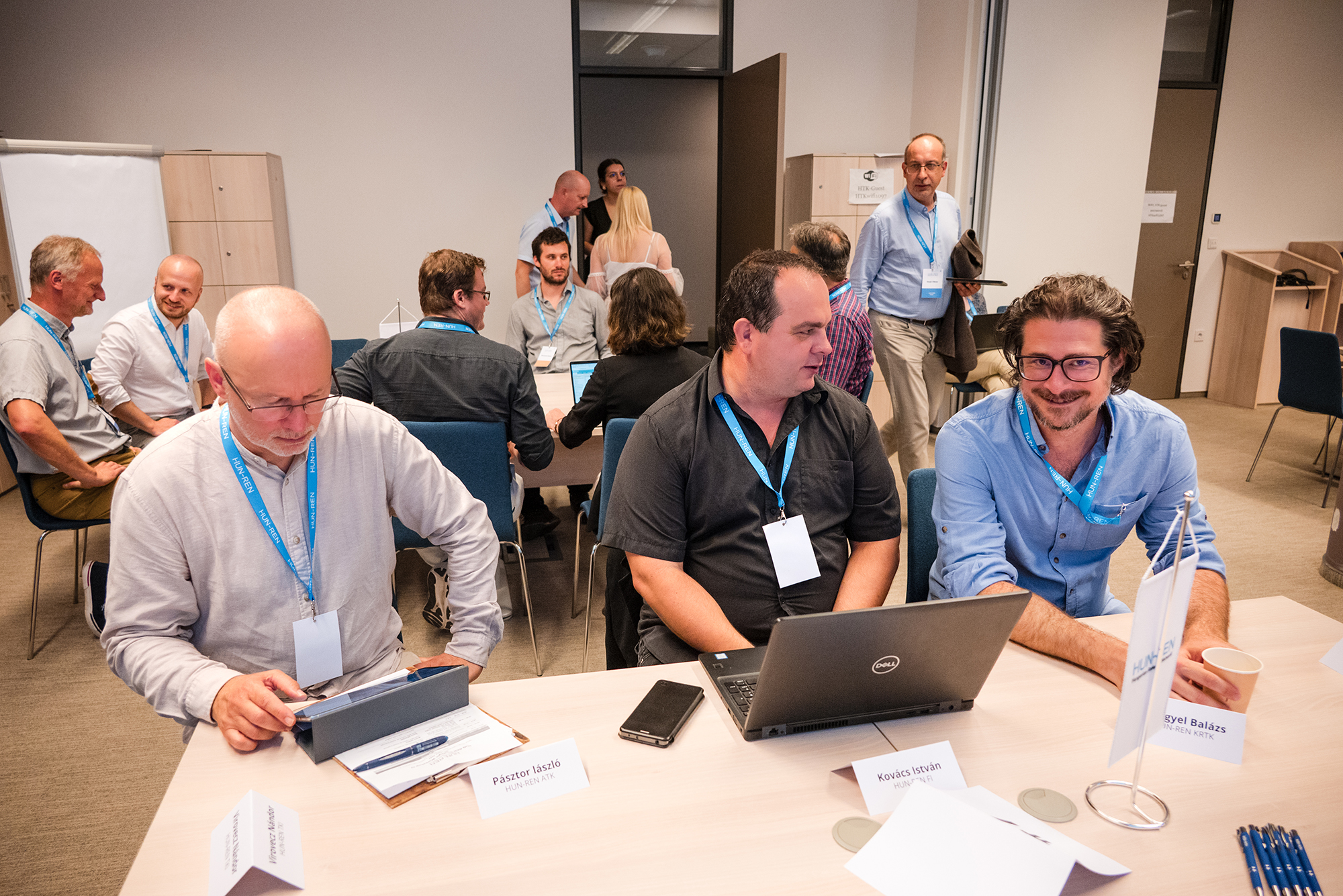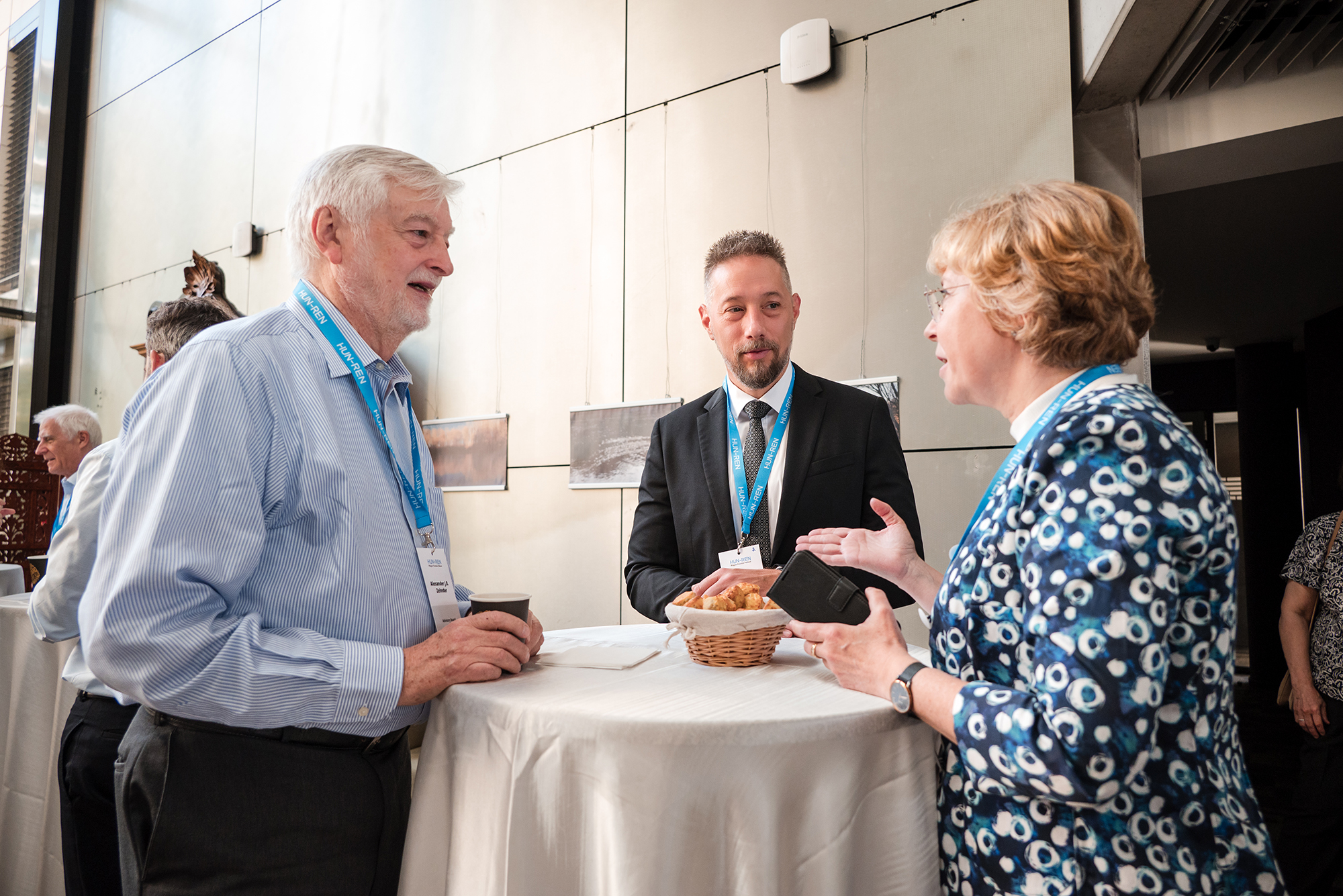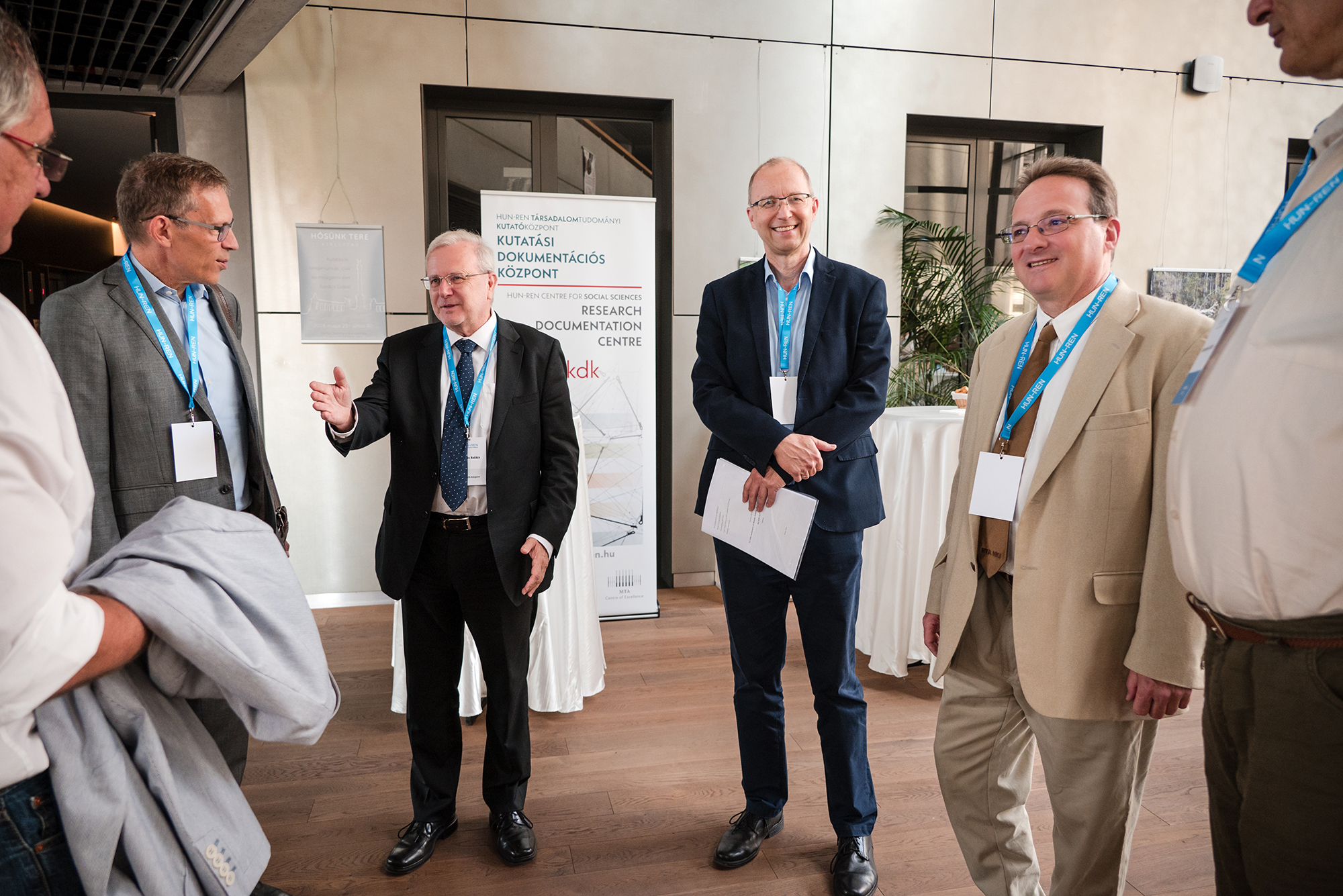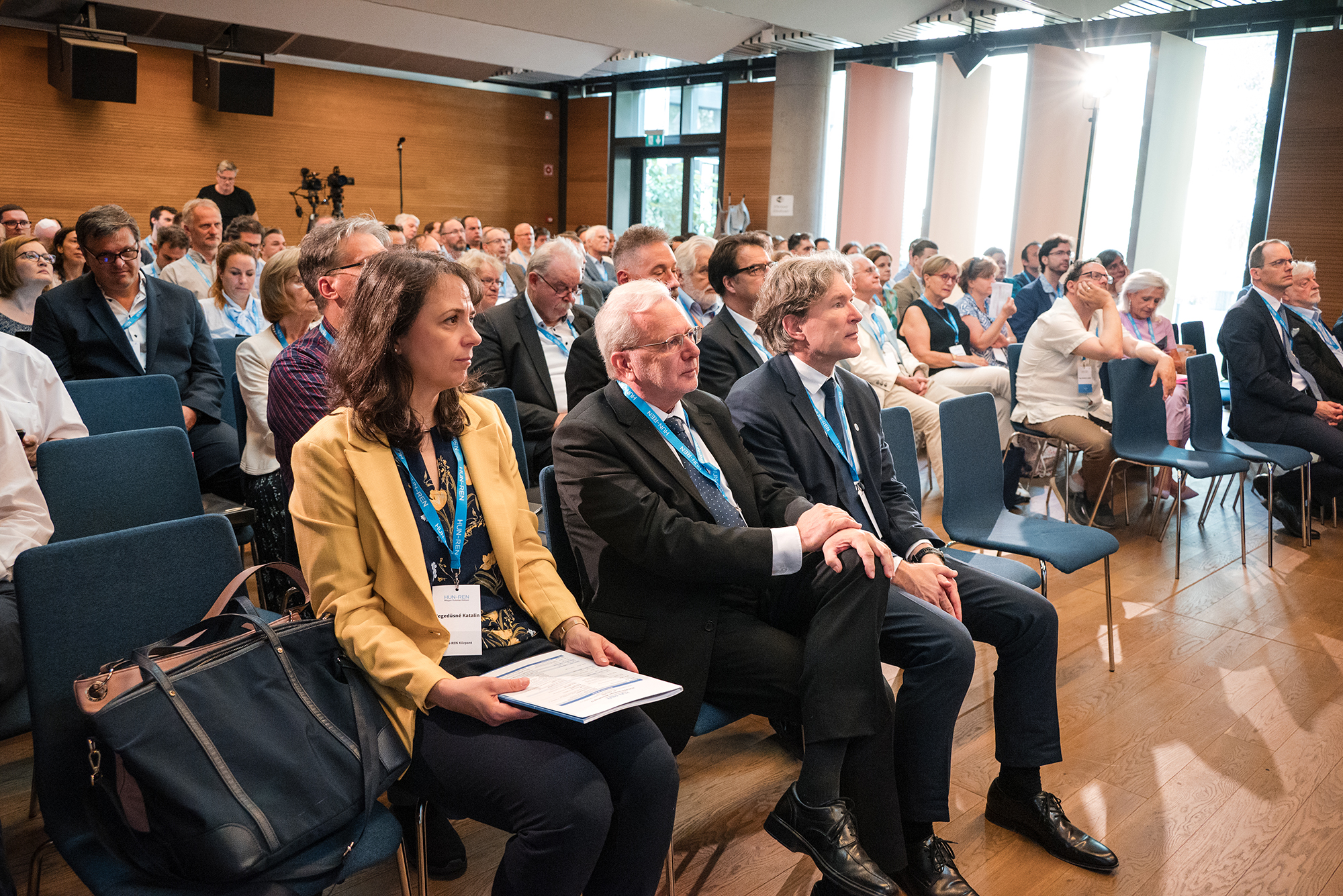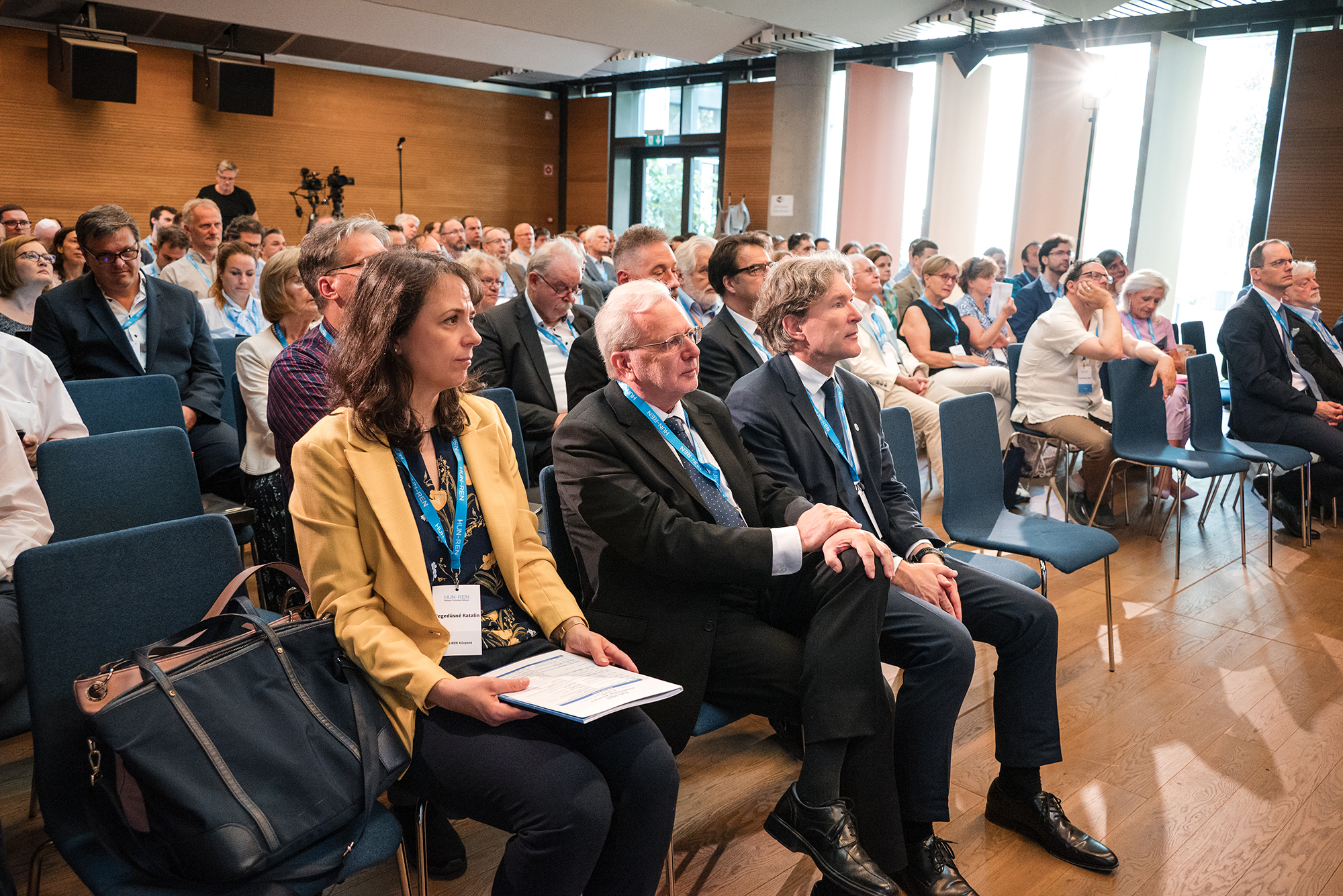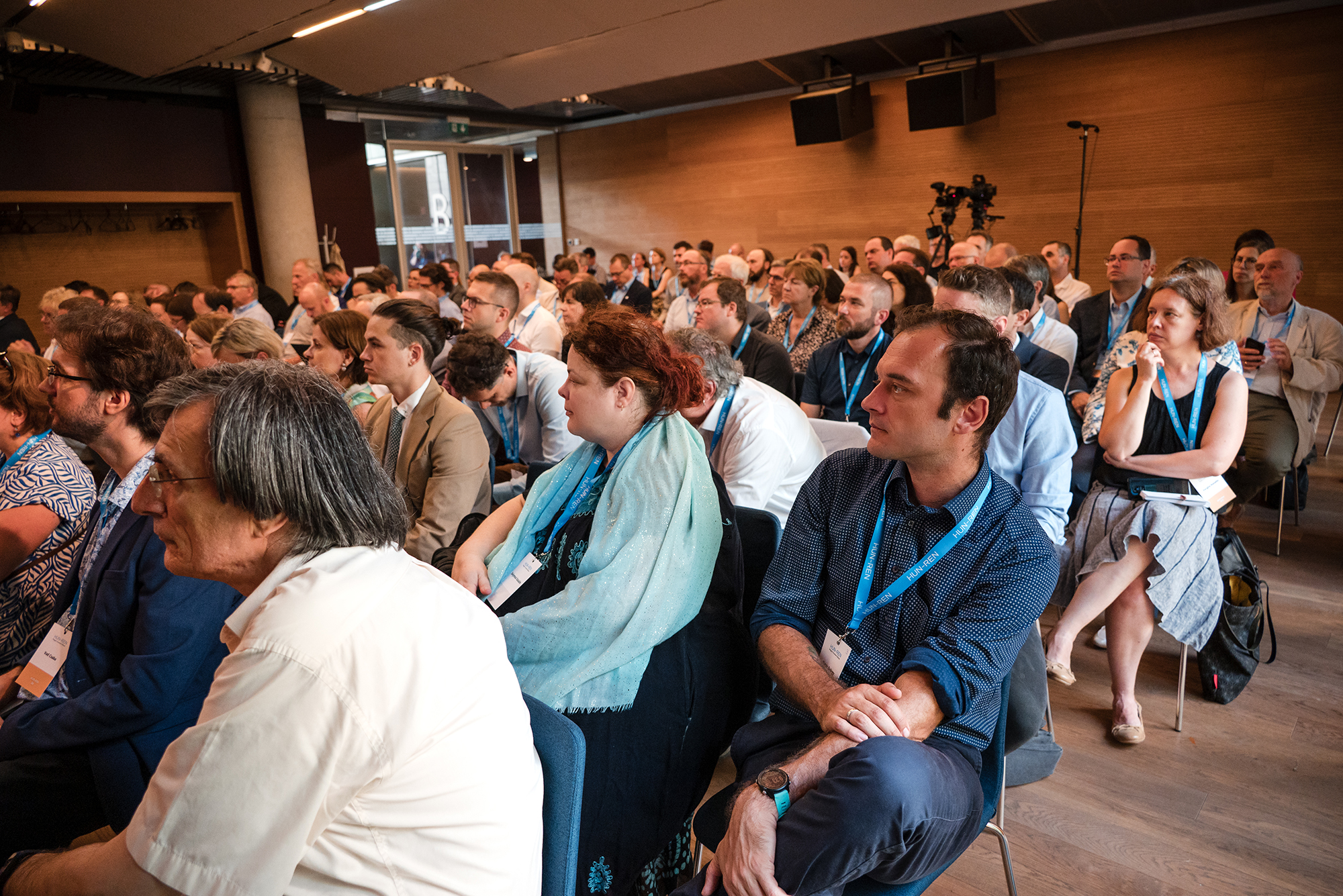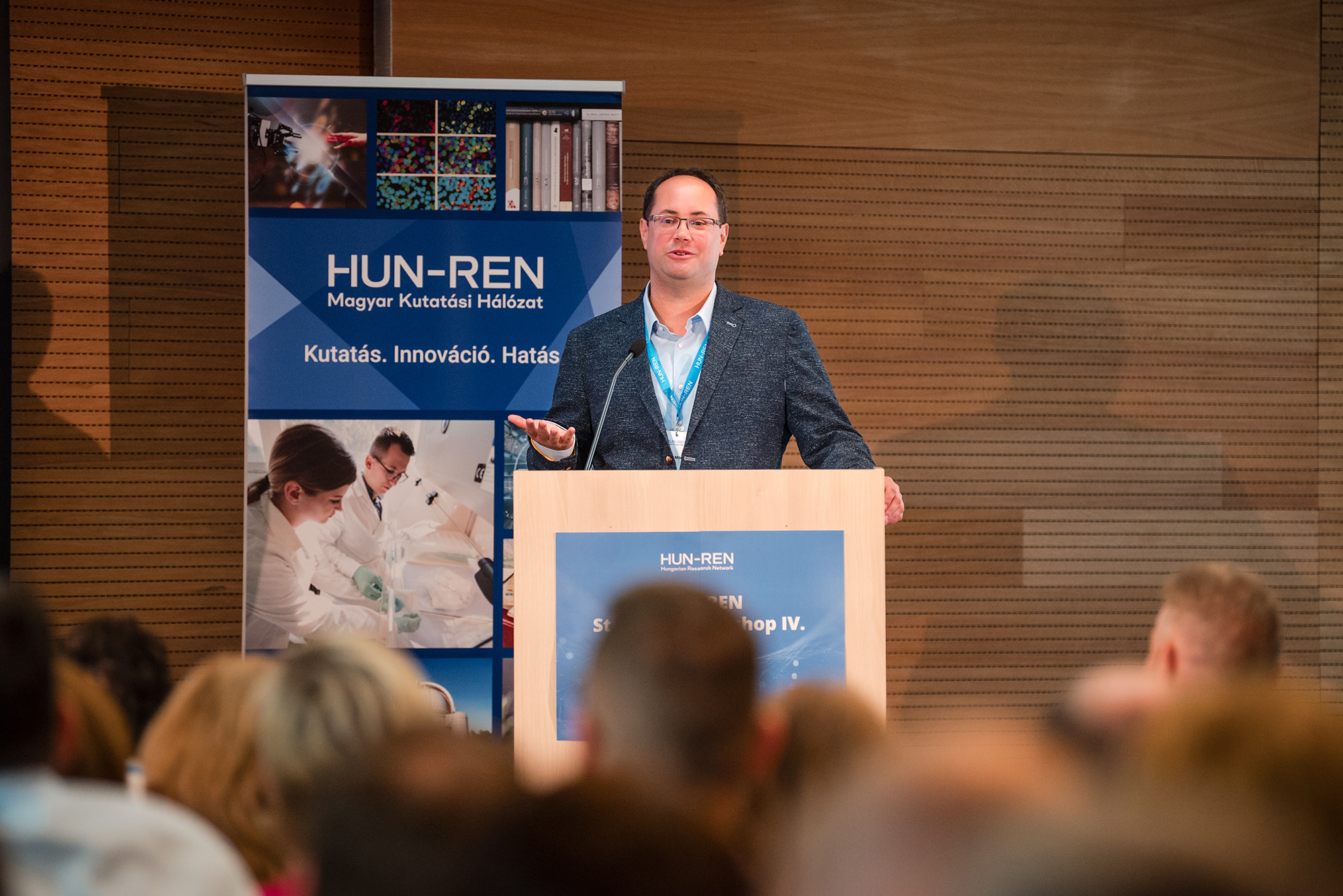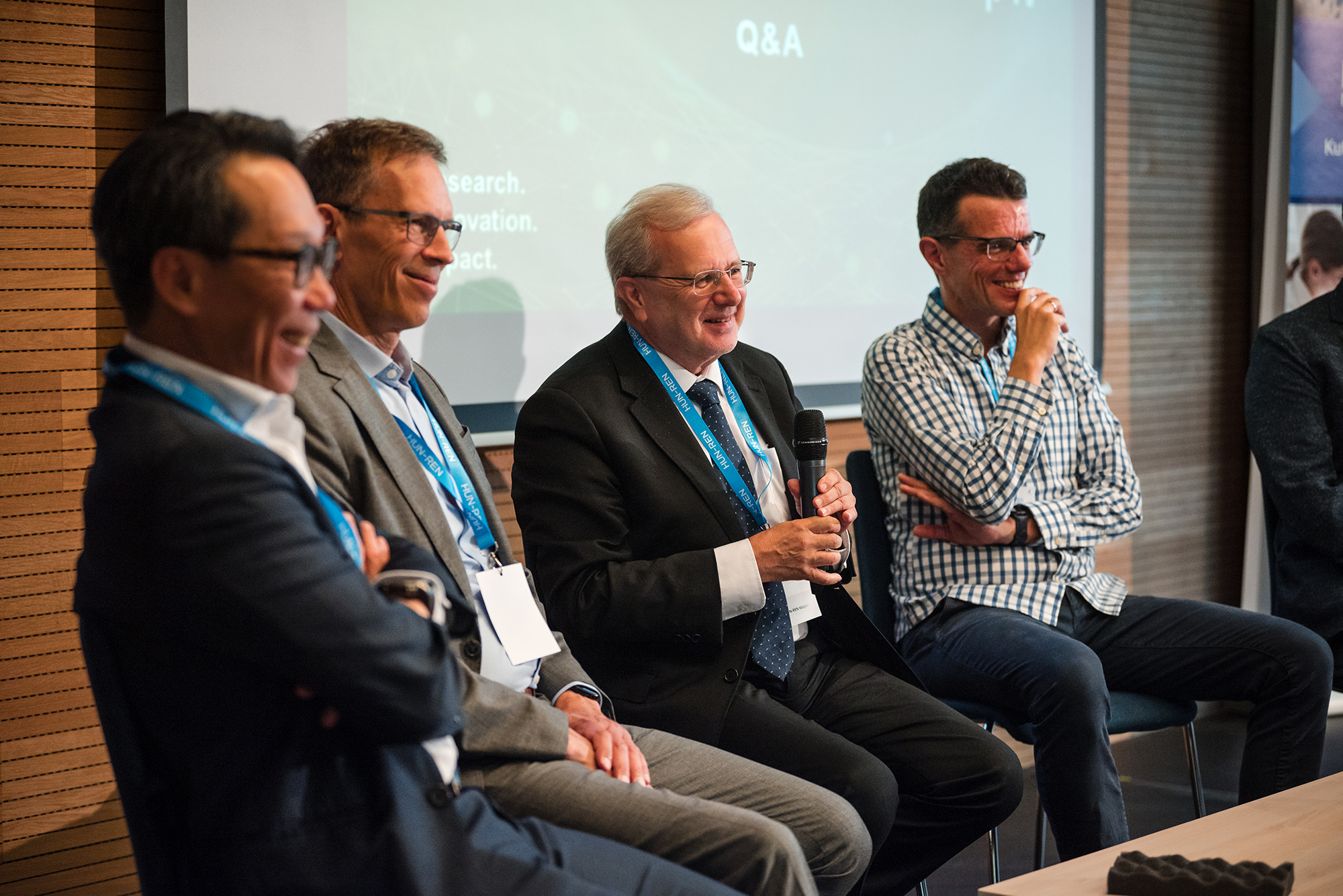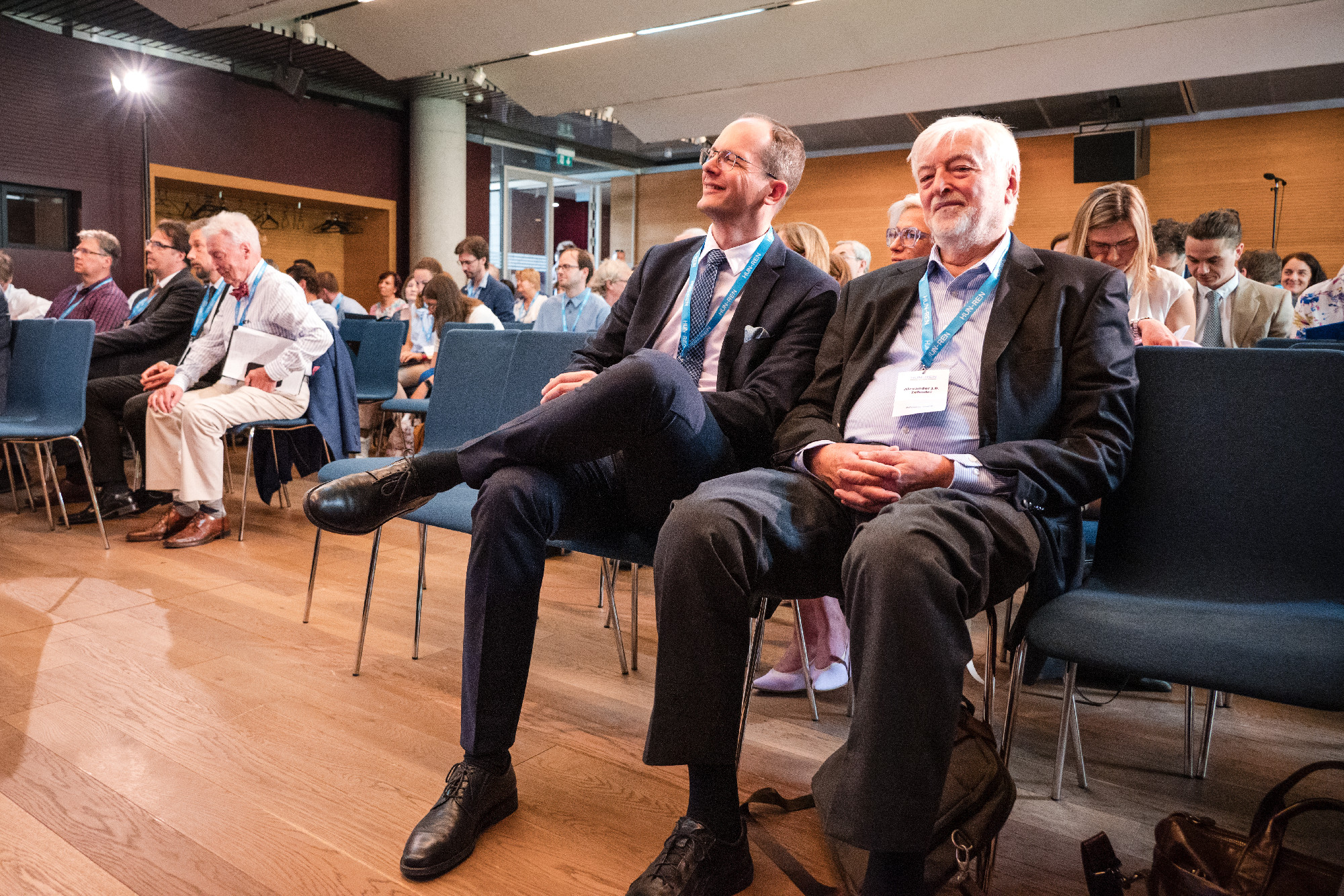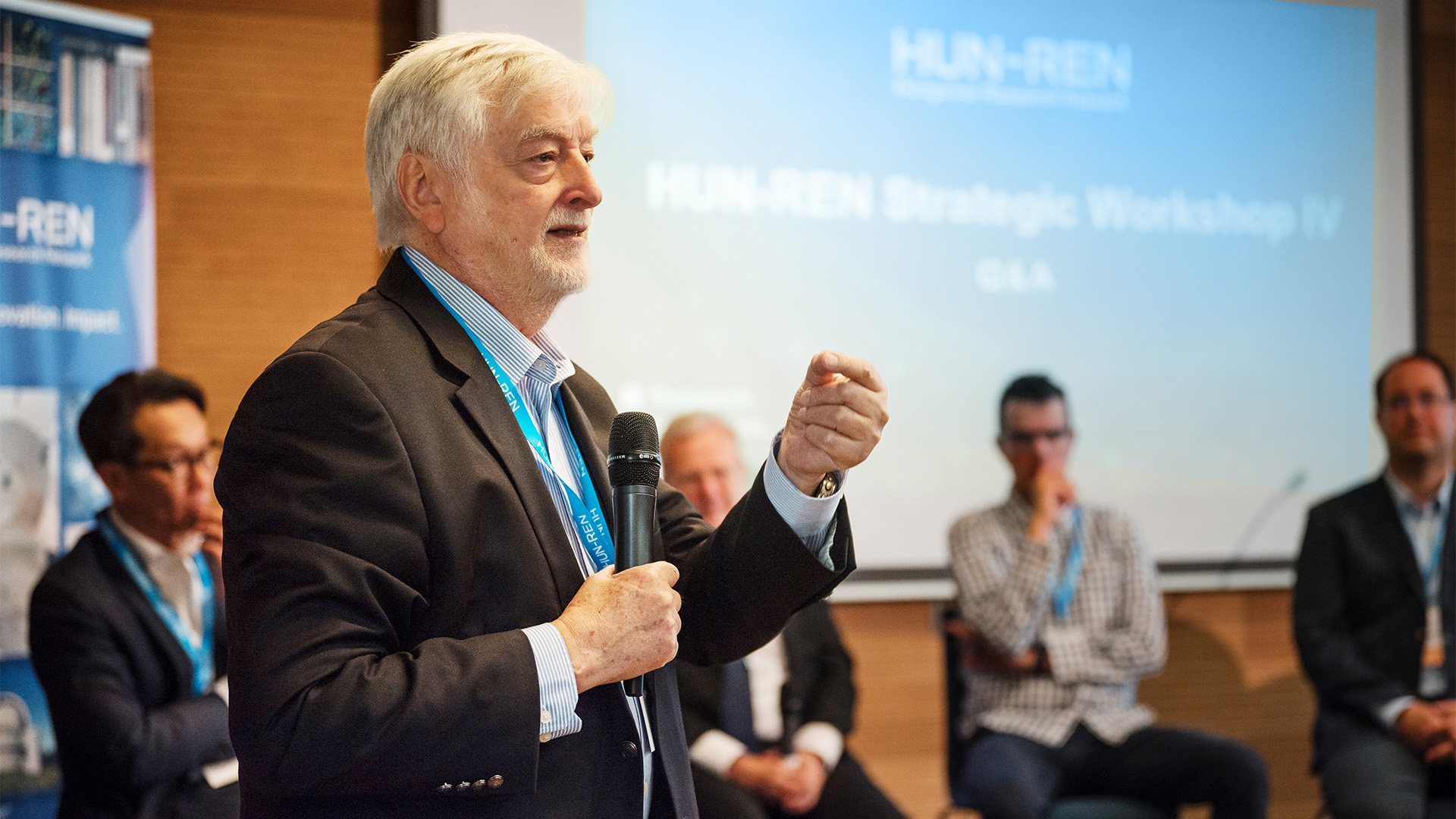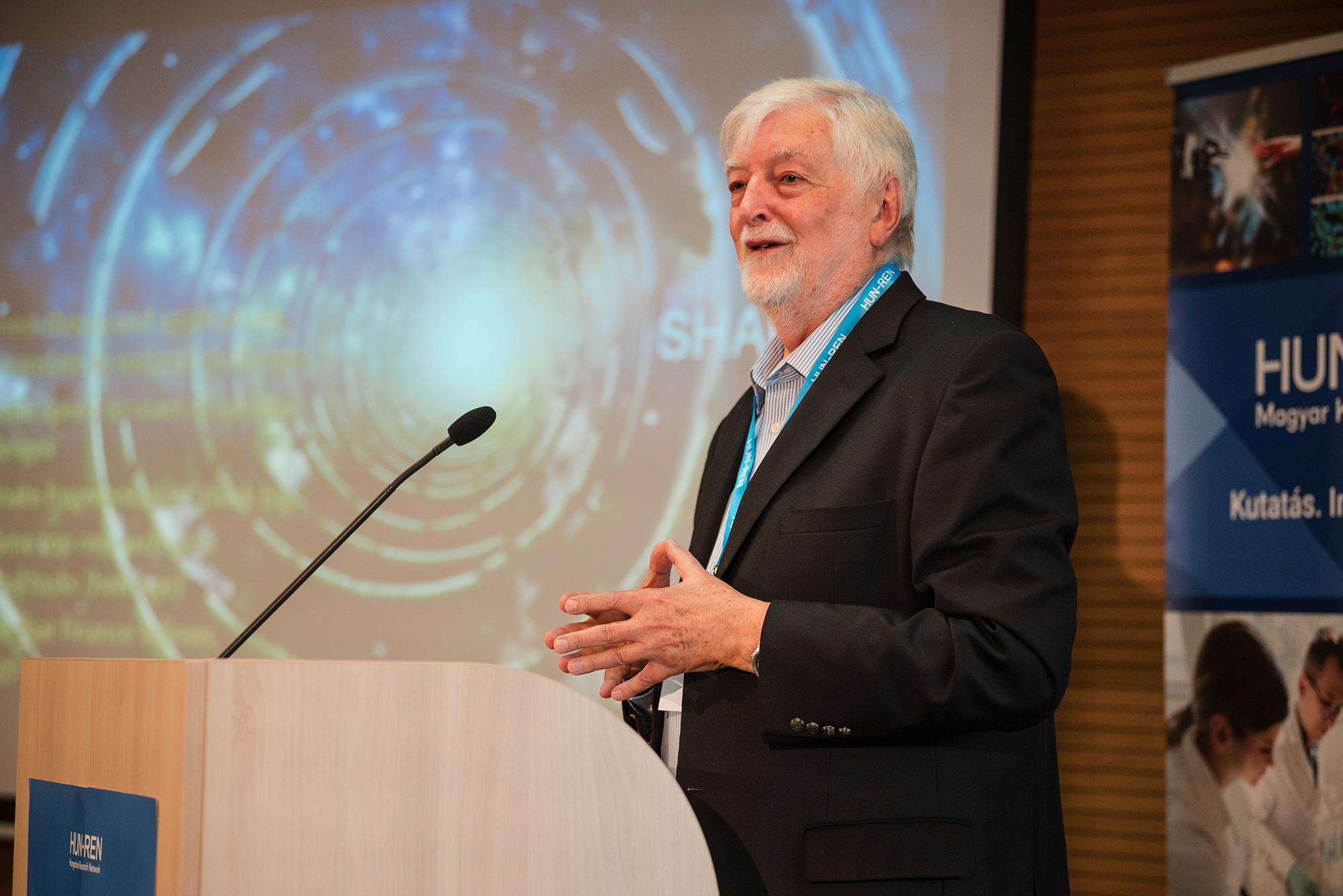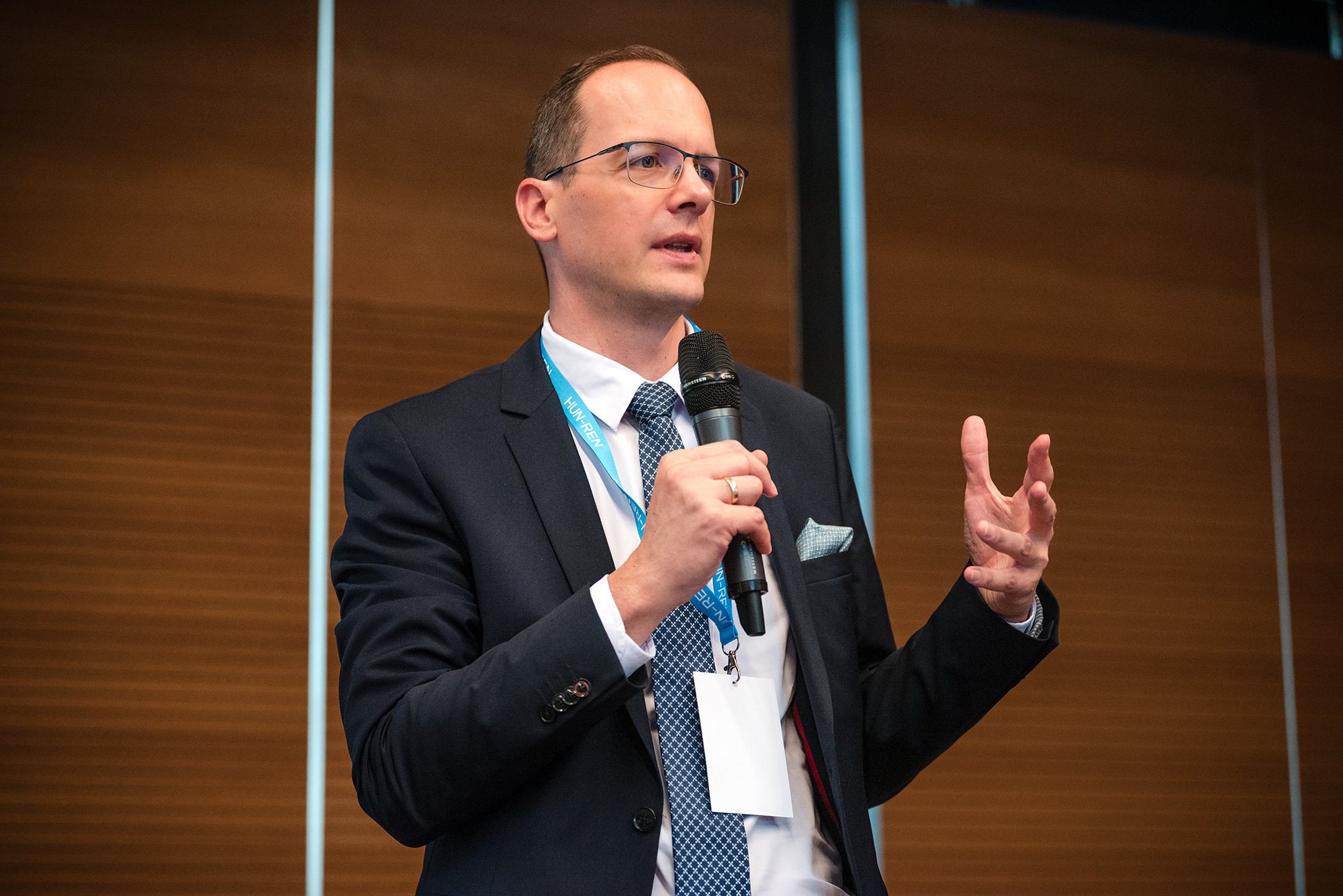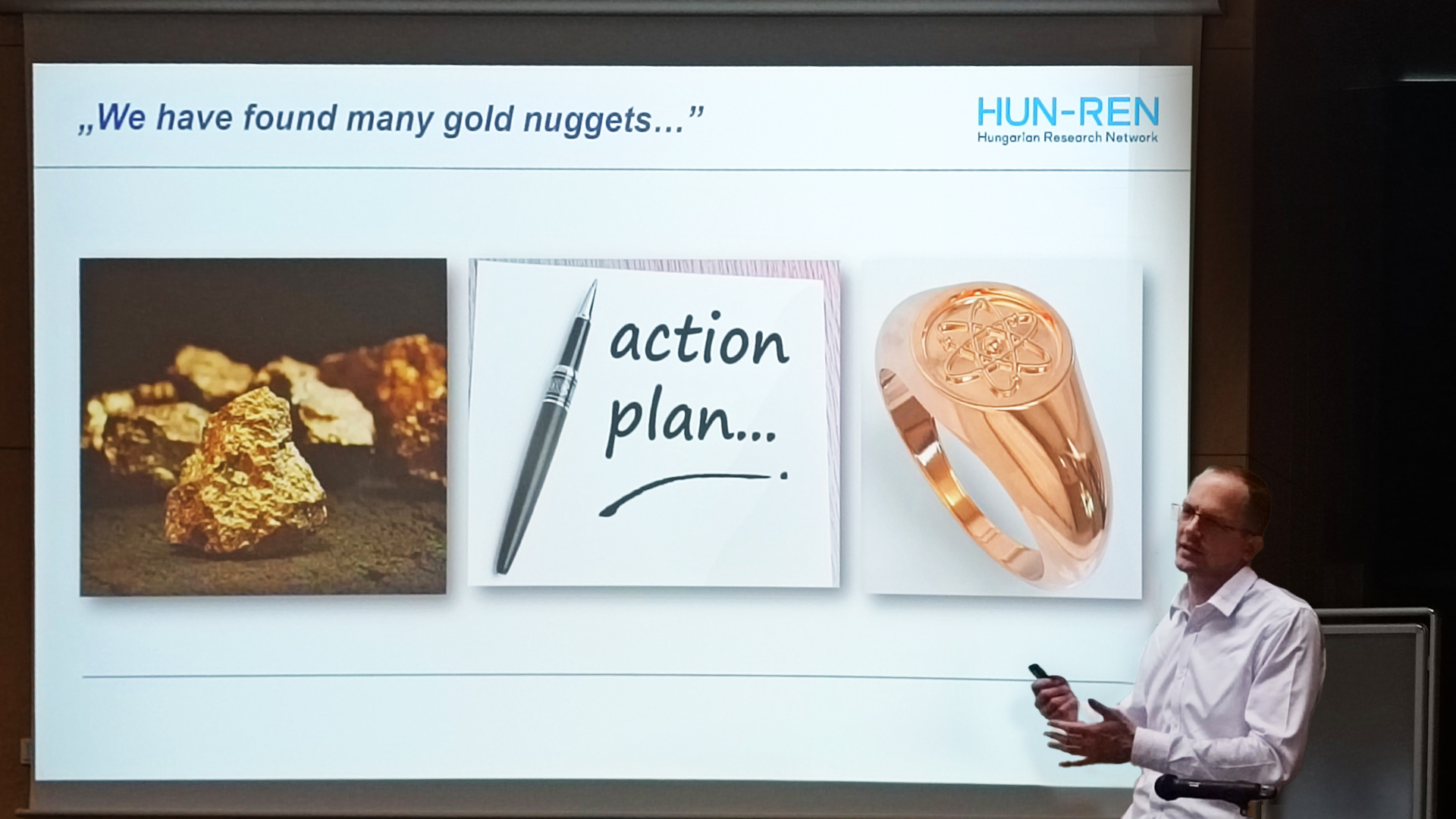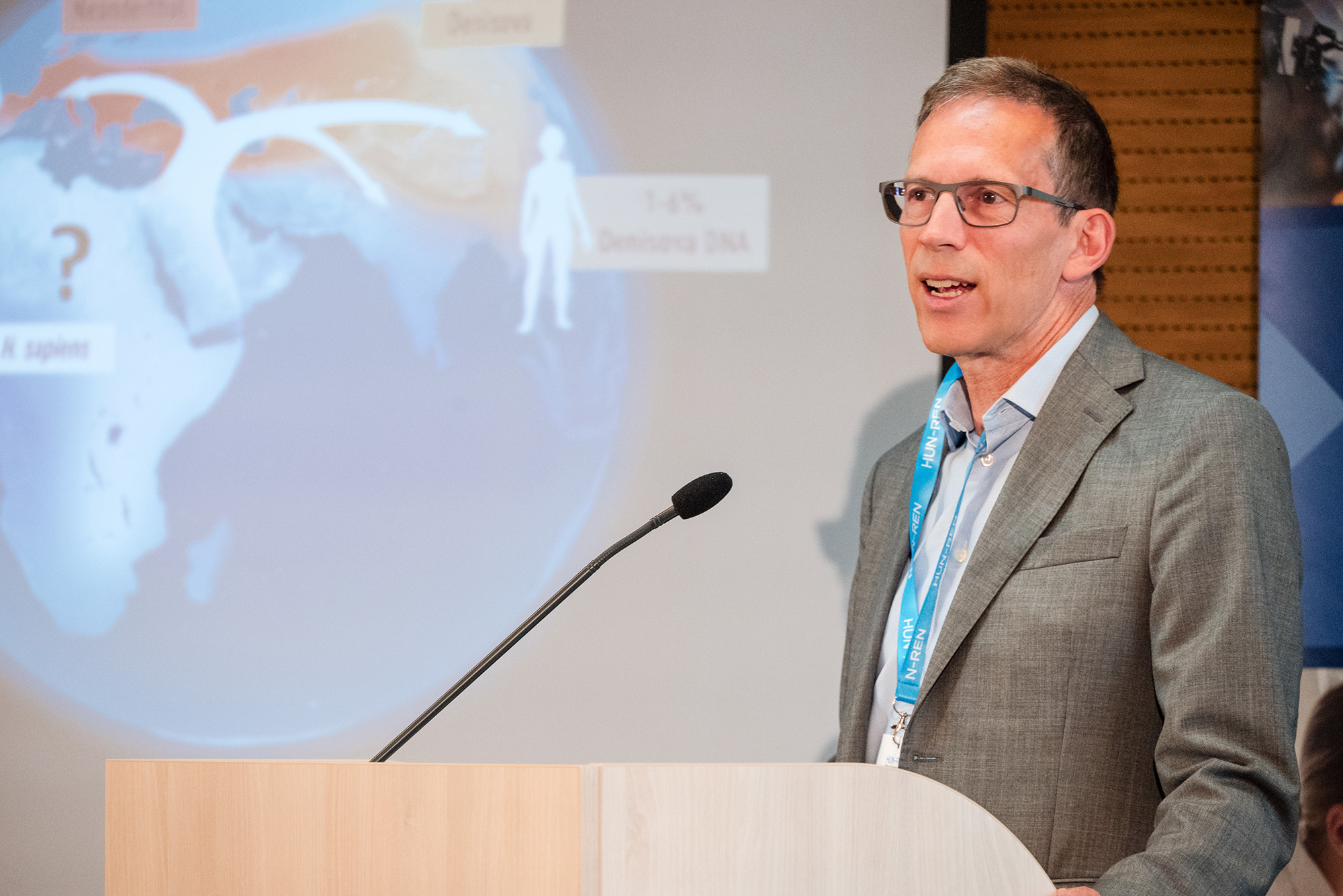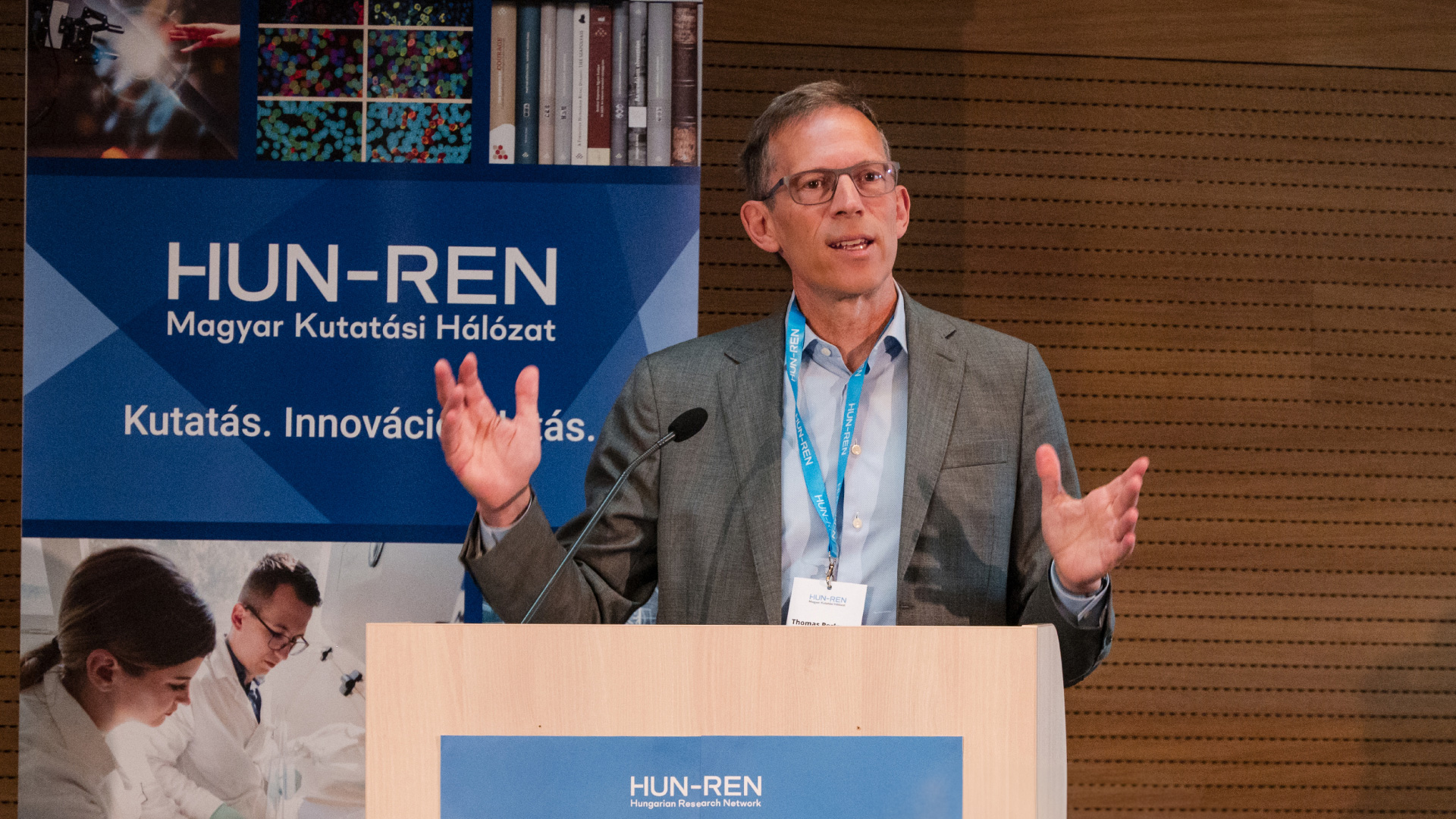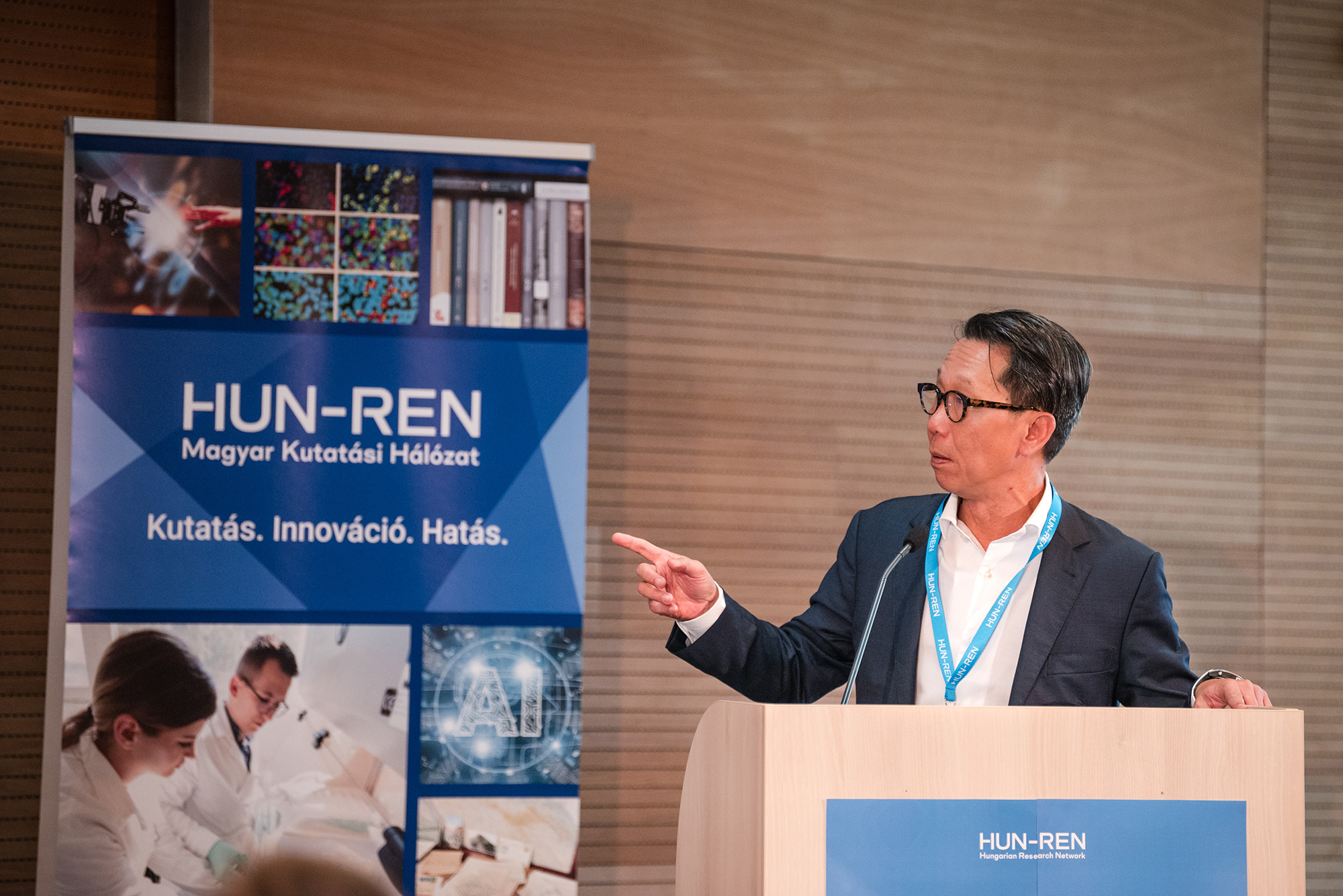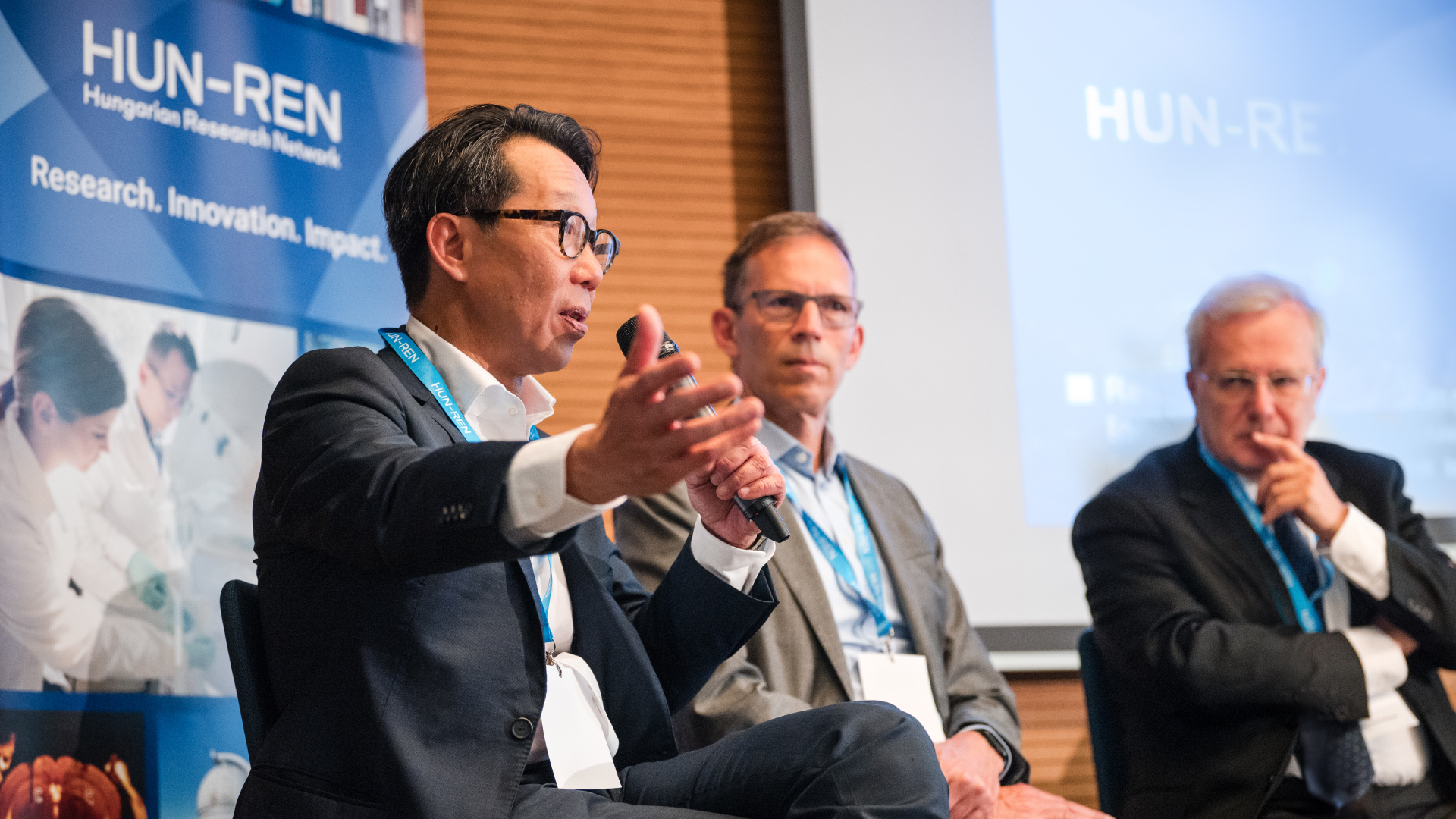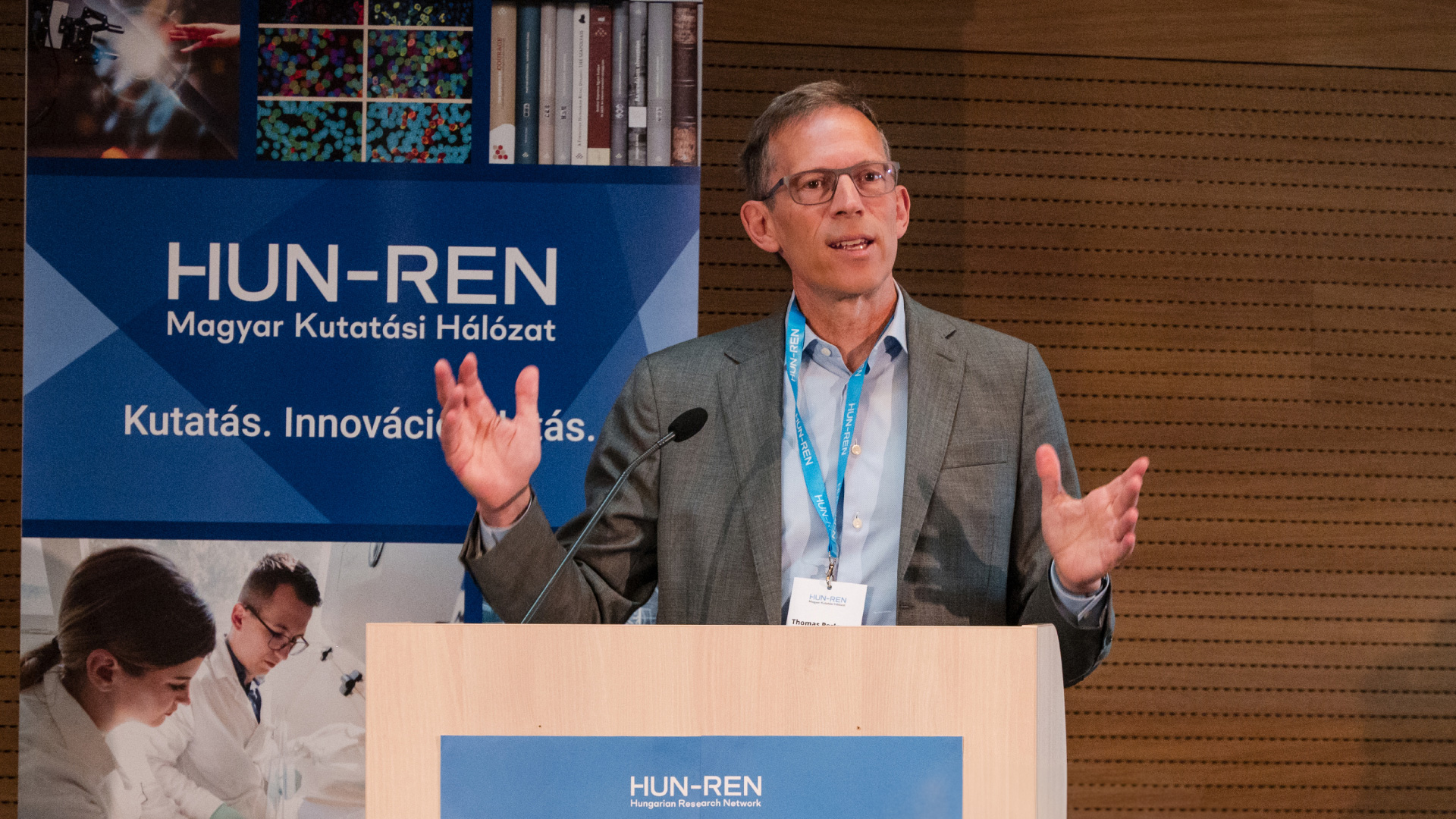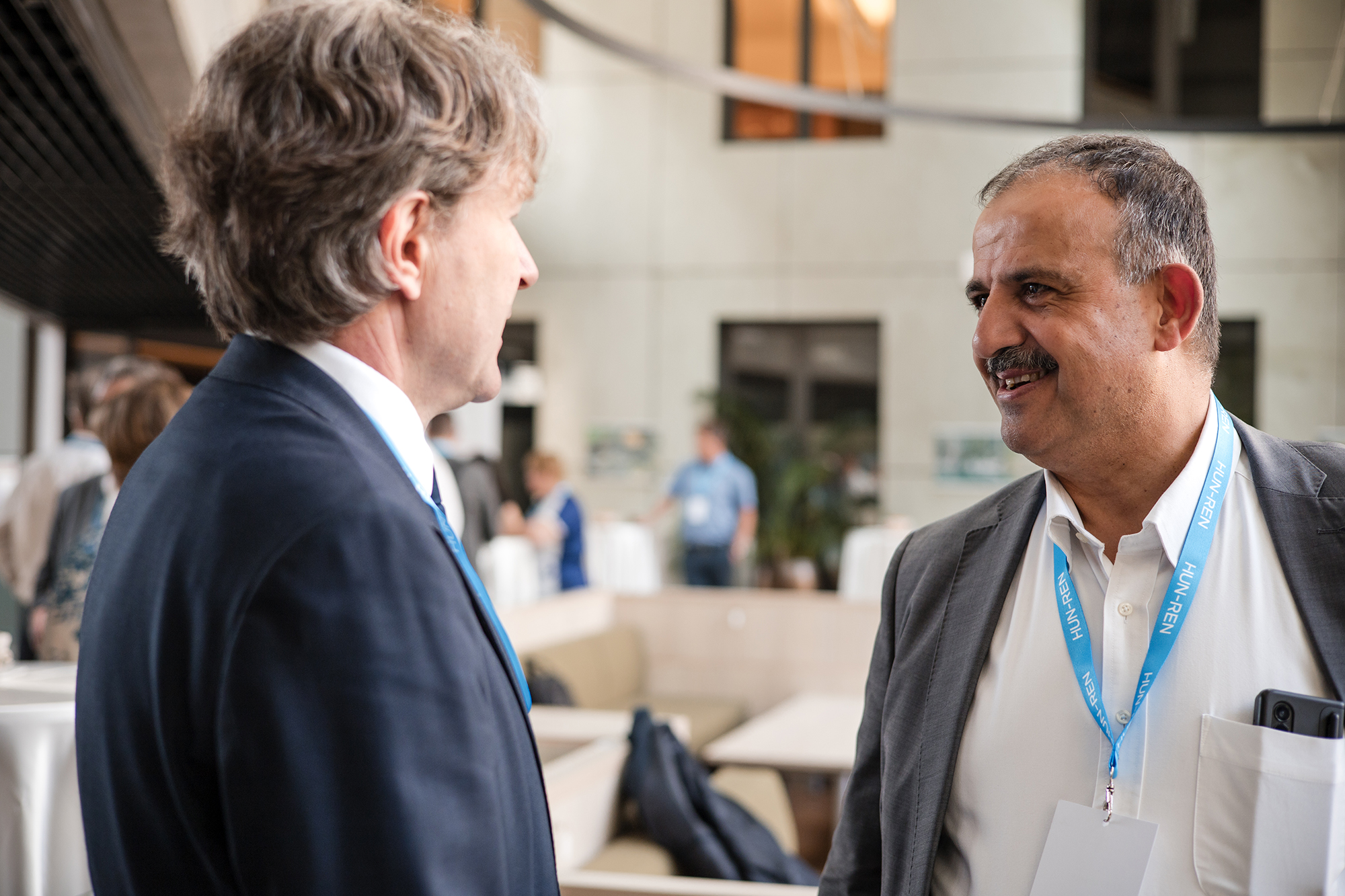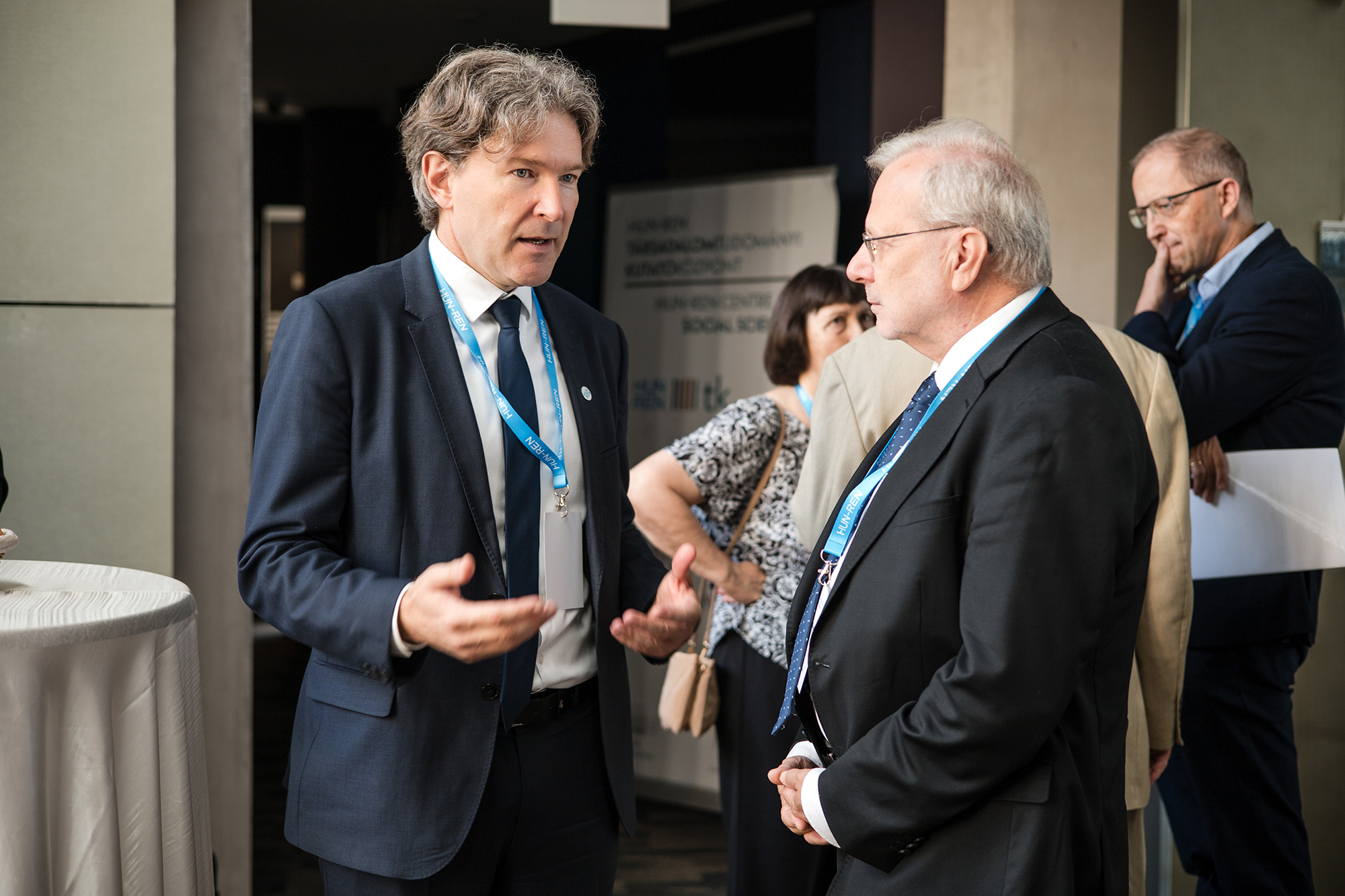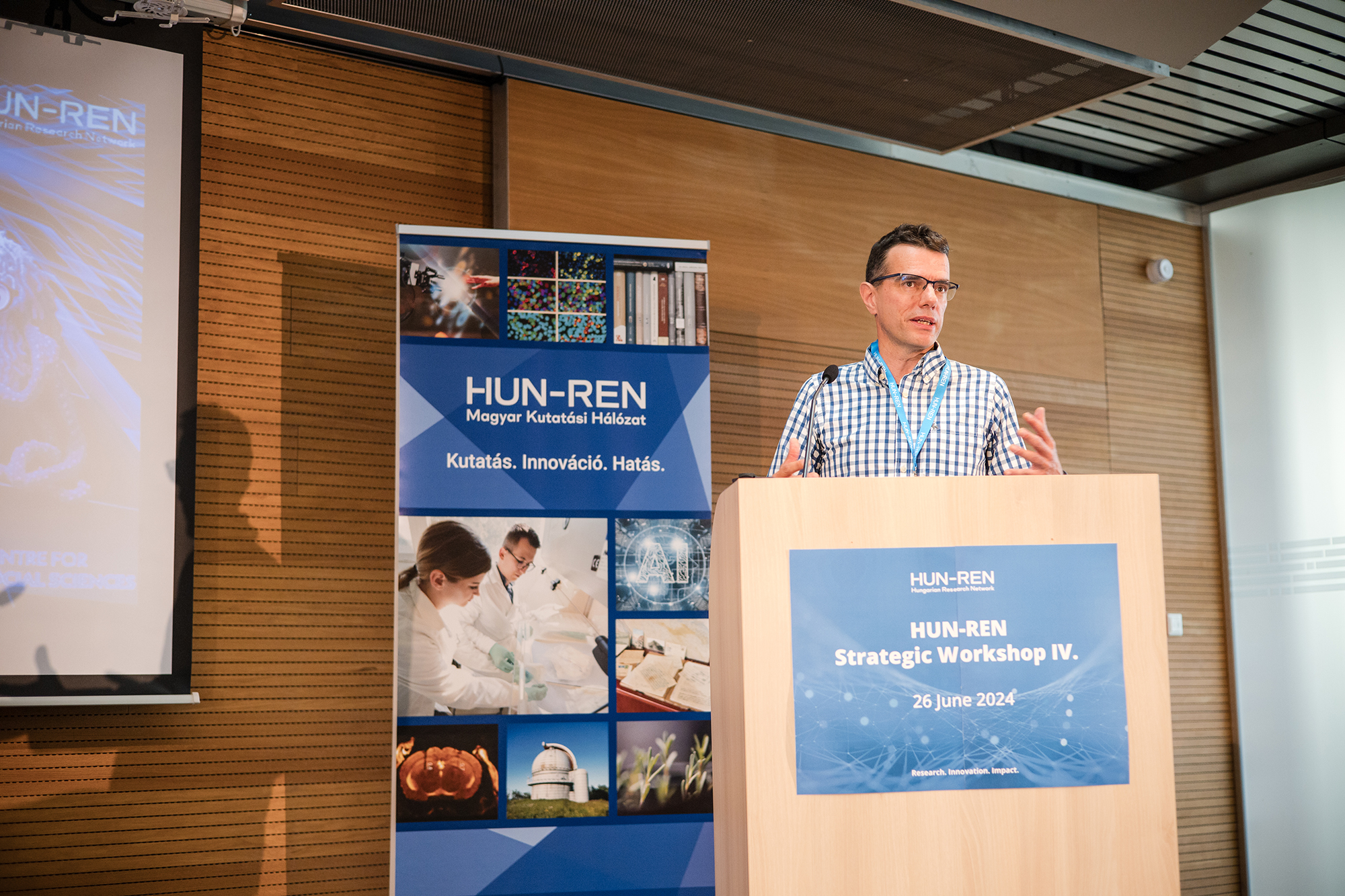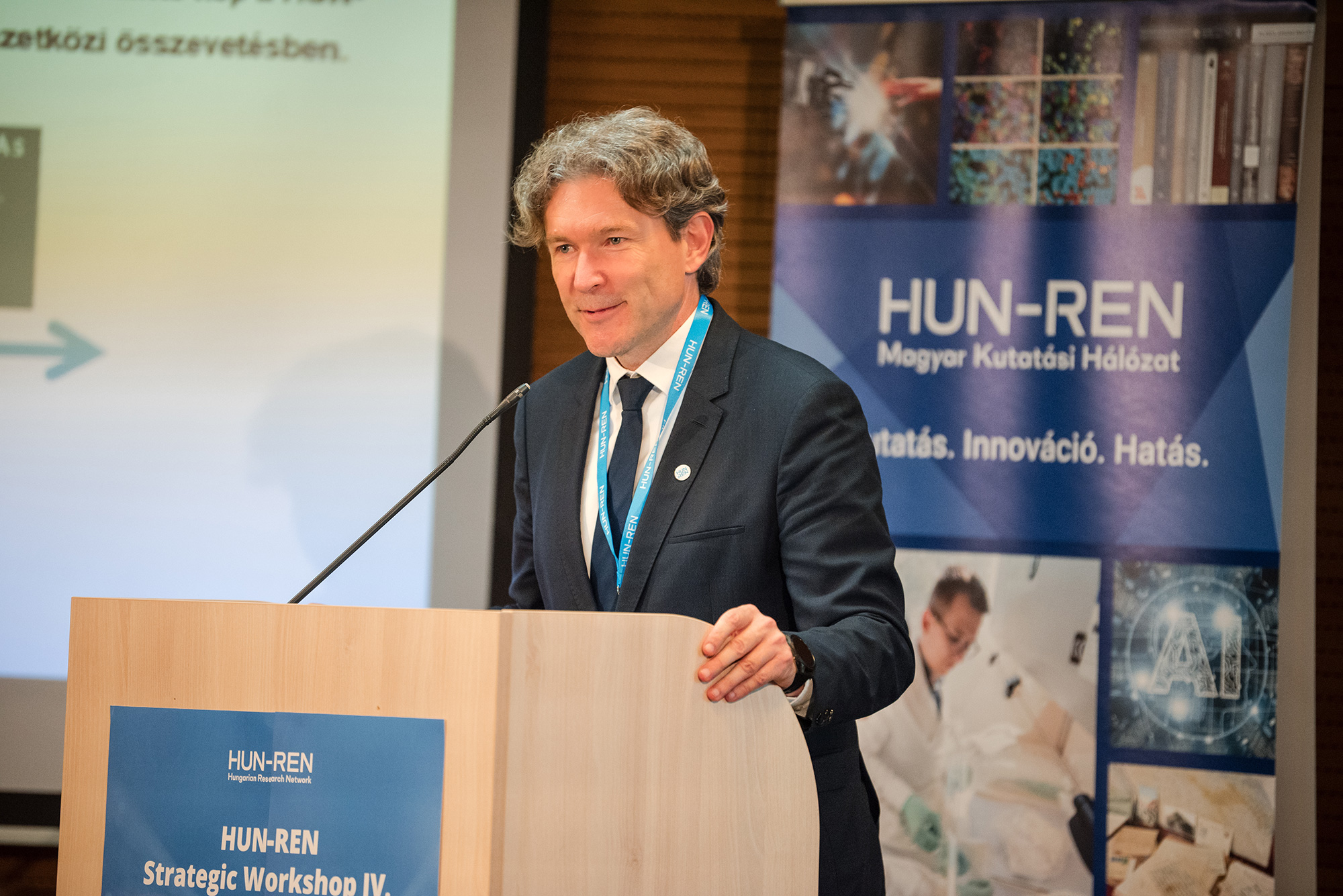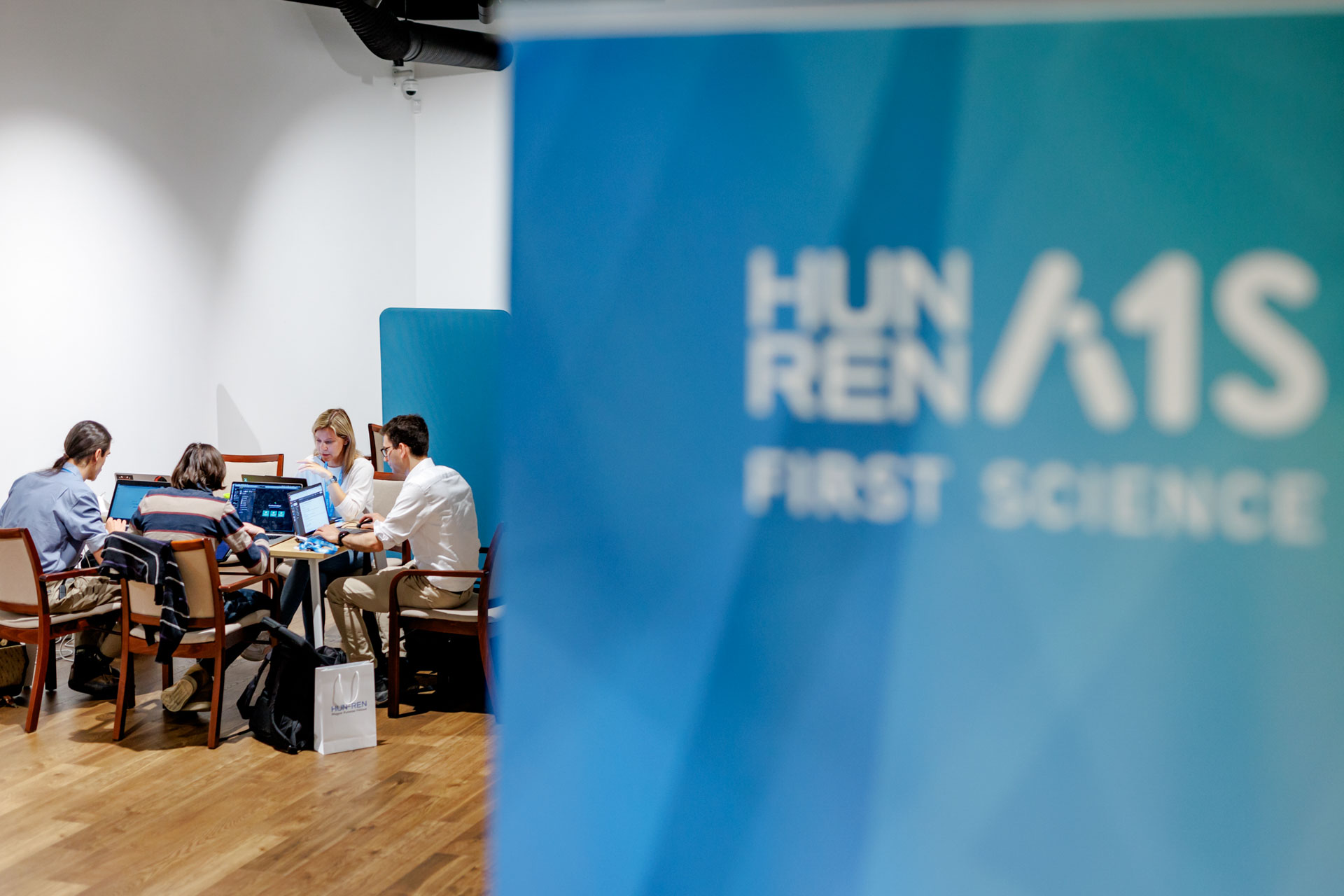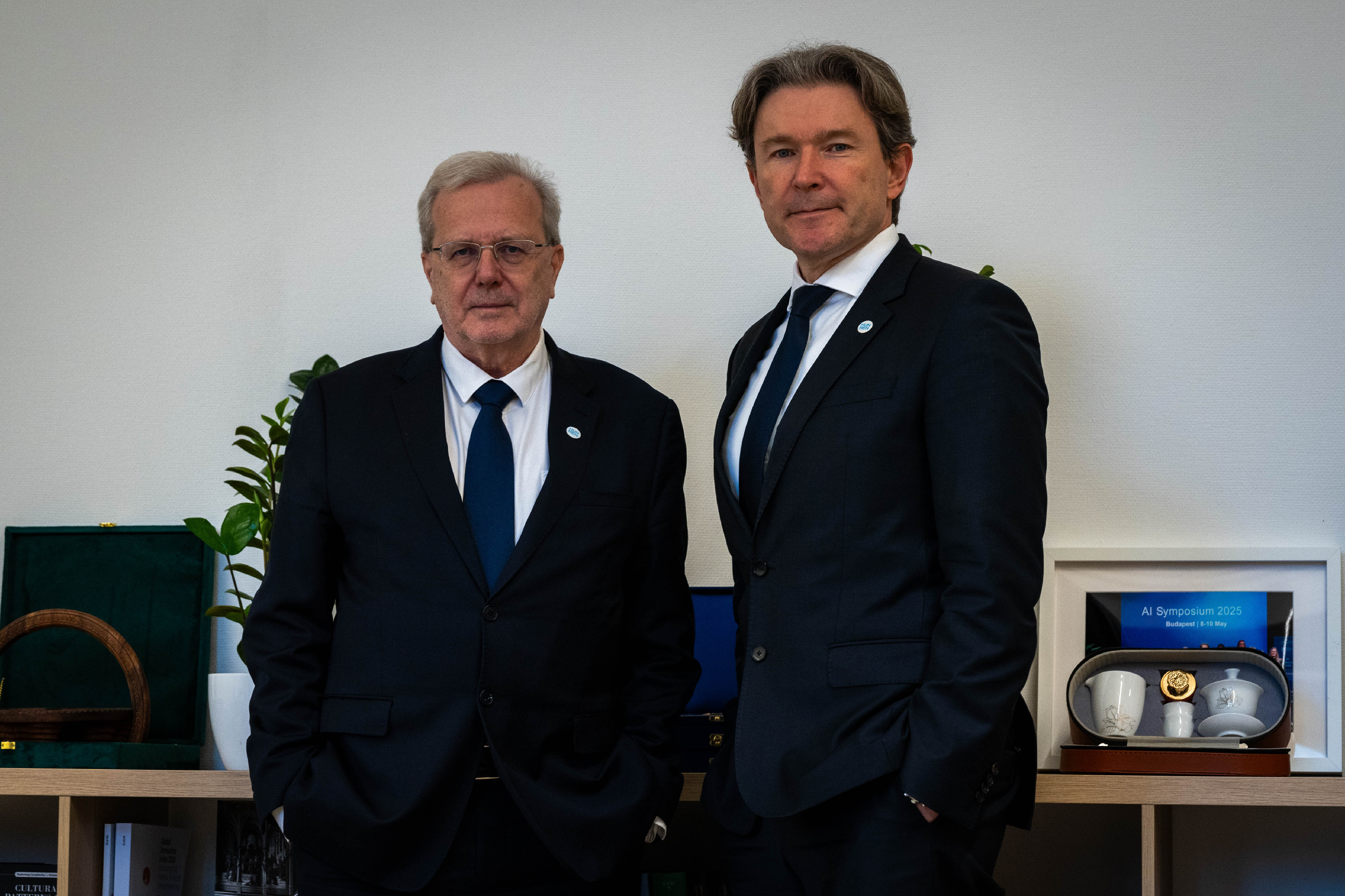No Compromise on Quality
The HUN-REN IV. Strategic Workshop discussed the strengthening of the organization of the Hungarian Research Network and the first results of the research site audits completed in June. Distinguished guest speakers spoke about, among other things, the unique process of awarding the Nobel Prize and the insightful development of Singapore, which is now ranked 5th in the global innovation ranking.
"We are not stagnating, but steadily moving forward. And we do all this in dialogue with every member of the network, with all those who actively participate in the work. We especially thank our young researchers for their participation," said Balázs Gulyás, President of HUN-REN, in front of the leaders of research institutes and invited guests. Significant announcements and summaries were made at the workshop held at the Research Center for Humanities, and both the President and CEO of HUN-REN requested the leaders of the research sites to pass on information affecting the entire network to their own staff.
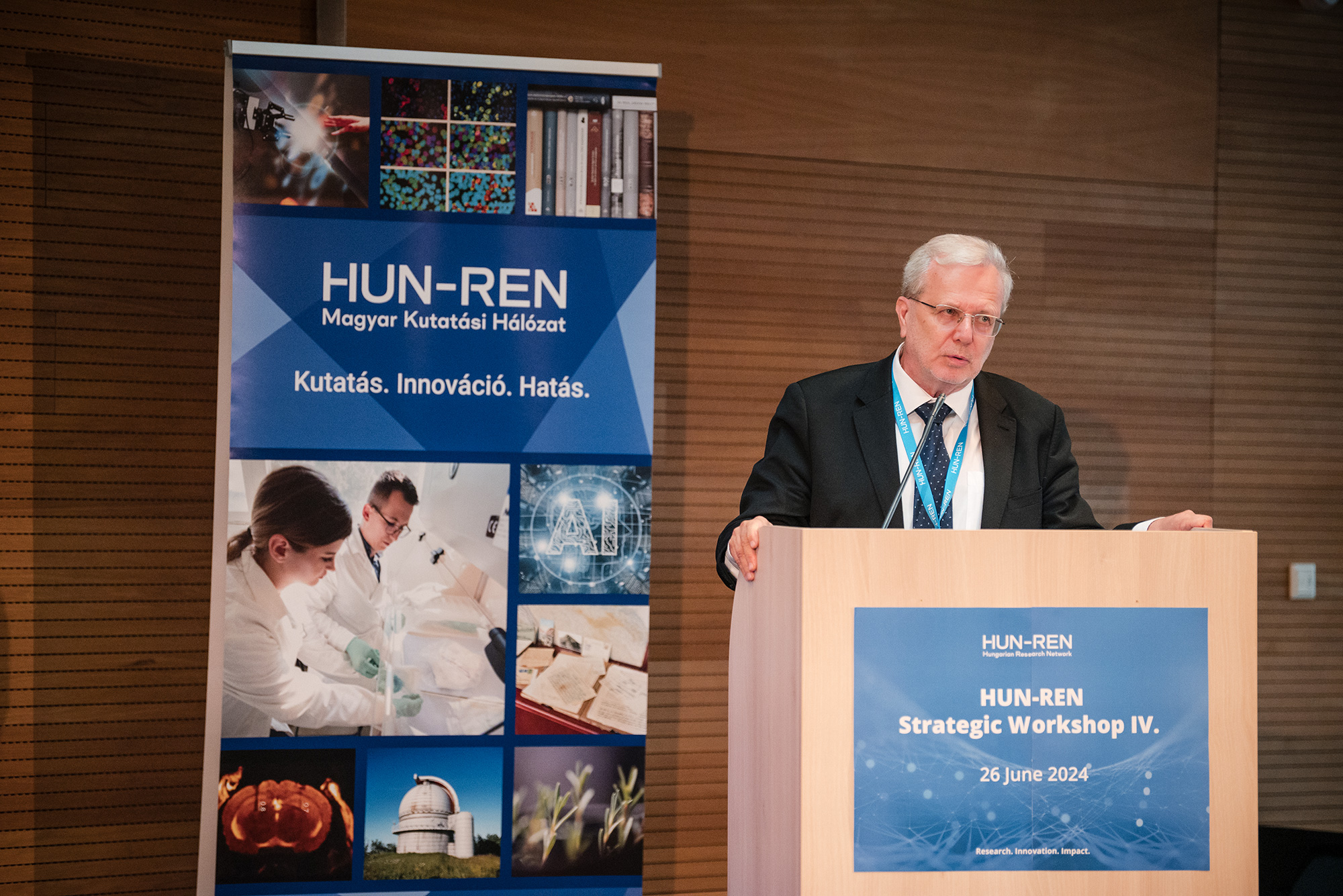
"The mission of HUN-REN Headquarters is to empower researchers to excel and to elevate the quality of research, thereby enhancing our global visibility. While funding is crucial, it is imperative to first establish a clear strategy for our goals, with resources subsequently falling into place. To optimize our financial and human resource management, we require a new IT platform alongside a modern organizational management and procurement system, which will also reduce administrative burdens. Our objective is to demonstrate the path from concept to economic benefit by actively fostering industry connections. We aim to create a one-stop solution where interested parties can easily find us and leverage our ideas for business development," summarized Roland Jakab, CEO of HUN-REN.
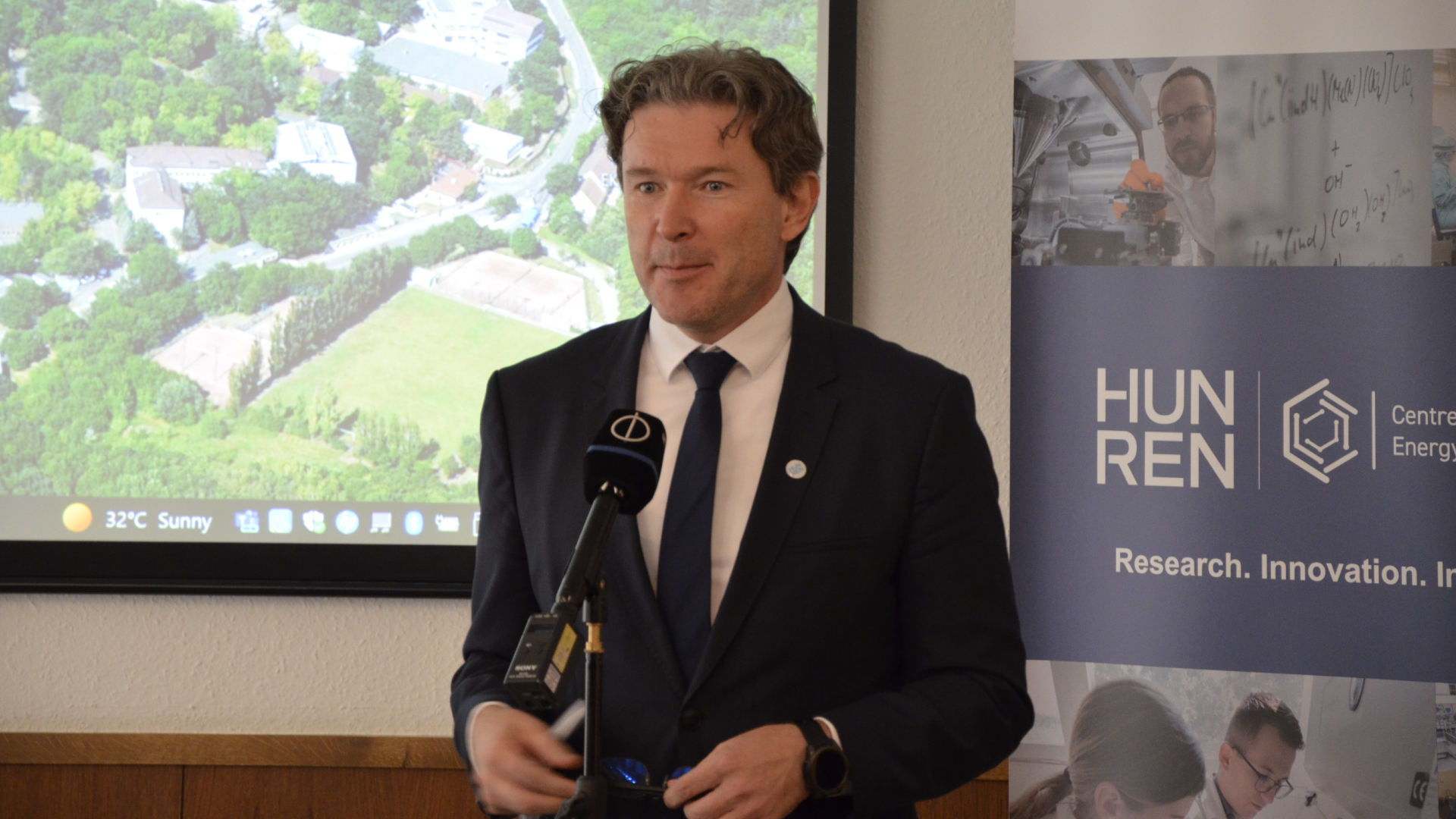
Bridge between science and market
CEO Roland Jakab outlined the recent developments initiated in the past few months, including the establishment of the HISC International Scientific Campus. This RDI (Research, Development, and Innovation) service center, though not a standalone institute, aims to produce highly applicable RDI-based products and services. Additionally, it seeks to create a world-class physical and intellectual incubator to facilitate collaboration among participants in the research and higher education ecosystem.
Jakab noted that the Zoltán Bay Research Institute, one of Hungary's prominent institutions involved in applied research, will now operate within the HUN-REN network. This integration enhances the Hungarian Research Network's innovation capacity and technology transfer capabilities. The Zoltán Bay Research Institute brings extensive experience in building international consortia and securing EU research, development, and innovation grants. Consequently, it can effectively serve as a bridge between science and the market.
In line with the Artificial Intelligence Action Plan launched in the spring, AI Ambassadors have begun their work within the network. An experimental project to promote the use of AI is underway, and with AI experts soon to be “active in the field,” a competency support program will be available to all HUN-REN researchers this fall.
Additionally, data stewards are now assisting in the management of research data sets, which are considered highly prized assets of the network, at every research site. The system of supported research groups is undergoing a transformation with the clear goal of involving young researchers and ensuring that all HUN-REN researchers have access to necessary resources. This transformation aims to encourage multidisciplinary collaboration across different scientific fields. The newly launched HUNRENTECH program, which replaces the previous Proof of Concept grants, is designed to support the innovation activities of research sites and facilitate the utilization of research results, including the engagement of industrial partners.
Gold nuggets awaiting processing
"To understand who we are, we first need to know how the global research community sees us. We aim to be the flagship of the national research ecosystem, and we must identify those common points where our institutes, researchers, and research groups can work most effectively to achieve this," emphasized Balázs Gulyás, President of HUN-REN, summarizing the insights gained from the international audits of the research sites.
He also noted that, as part of the evaluation, HUN-REN was benchmarked against several international research institute networks. Following these on-site evaluations, the development of an action plan essential for both organizational and scientific advancement will commence at HUN-REN Headquarters. This will include the creation of institutional strategies, shaped by the efforts of the dedicated task forces.
"We need to find the best people—because it is they who make an organization great—who are not only skilled but also diligent in completing tasks," began Prof. Em. Alexander J.B. Zehnder, Chairman of the HUN-REN Advisory Board and leader of the international evaluations project. Speaking about the scientific audit of the research network, he remarked, "We found gold nuggets awaiting processing, along with many enthusiastic young researchers who, despite not yet earning as much as would be ideal, are deeply dedicated because they love science."
Professor Zehnder emphasized that this community of young talents has the potential to achieve great success, not only domestically but also regionally and internationally, ultimately becoming leaders in their fields. The Swiss-based researcher also noted that the institutes are expected to provide suggestions for measuring their own performance. The goal is to achieve international validation and recognition in their respective research fields, as there can be no compromise on quality. (A detailed summary of Professor Zehnder's presentation will be provided soon in a separate report.)

Phone call and Nobel Prize
At the workshop, Professor Thomas Perlmann from the Karolinska Institute in Sweden, who serves as the Secretary of the Committee awarding the Nobel Prize in Physiology or Medicine, delivered a compelling guest lecture. In his talk, titled "Path to the Nobel Prize," he presented the history, significance, and awarding process of this prestigious scientific recognition.

Professor Perlmann explained that each year, approximately 700 applications are received for the prize, which undergo several months of thorough consideration and evaluation. Since its inception, the prize has honored new scientific discoveries and inventions, reflecting the vision of its founder, Alfred Nobel. The Nobel Prize, arguably the world's most prestigious scientific award, significantly shapes the identities of its laureates. The pivotal moment comes with that specific phone call early on the first Monday morning of October each year, when he, as the committee's secretary, personally informs the winner. (An exclusive interview with Professor Perlmann will soon be available on our website.)
Those we can learn from
Jui Lim, CEO of SGInnovate, an organization dedicated to supporting deeptech startups in Singapore, shared valuable insights into the development and current functioning of the island nation's innovation ecosystem. When Singapore gained independence in 1965, it was extremely poor and relied heavily on labor-intensive industries. Today, it ranks 5th in the Global Innovation Index, boasting a predominantly knowledge-intensive, innovation-driven economy. Singapore has succeeded in creating intellectually stimulating, well-paying jobs, with new opportunities emerging almost daily.

To achieve this development trajectory over just half a century, political stability and national consensus were crucial for deciding where to invest Singapore's initially loan-based resources. The primary investment focus was, and continues to be, on education and research-innovation. Today, Singapore's higher education institutions rank among the leading universities in Asia and the world, with more than half of its young adult population holding degrees. Its research institutions operate with a substantial state budget of $28 billion dedicated to research and innovation. Of this amount, 55% is allocated to basic and mission-driven research, and 21% to innovation and the creation and support of enterprises, which is overseen by Dr. Lim's organization. (An exclusive interview with Dr. Lim will soon be available on our website.)
Freely discussing the challenges
In the afternoon, directors and researchers from various institutes gathered in several sections, adopting a science café format to discuss critical issues for HUN-REN. These topics had been formulated by the eight working groups supporting the development concept of the Hungarian Research Network. Among other issues, they explored the following questions: How effective are HUN-REN's procurement and administrative mechanisms? How suitable are the current quality indicators for enhancing performance? And how important is it to ignite the interest of high school students in research careers from the perspective of HUN-REN's recruitment strategy?

István Szabó, Deputy CEO for Strategy and Innovation at HUN-REN, reflected on the topics discussed. He noted that the evaluation process revealed some institutions already have performance-based evaluation systems in place. He proposed aligning these systems and jointly developing an effective, yet non-uniform, framework that rewards high-performing researchers with appropriate compensation. To support marketable innovation projects at research sites, HUN-REN Headquarters, which also undertakes innovation management, will be much more actively involved. Szabó also emphasized that sparking the interest of high school students is one of HUN-REN's dedicated tasks: "We need to show students what is happening at the research sites. This is sometimes not easy, but they will be the future generation of researchers," he highlighted.

